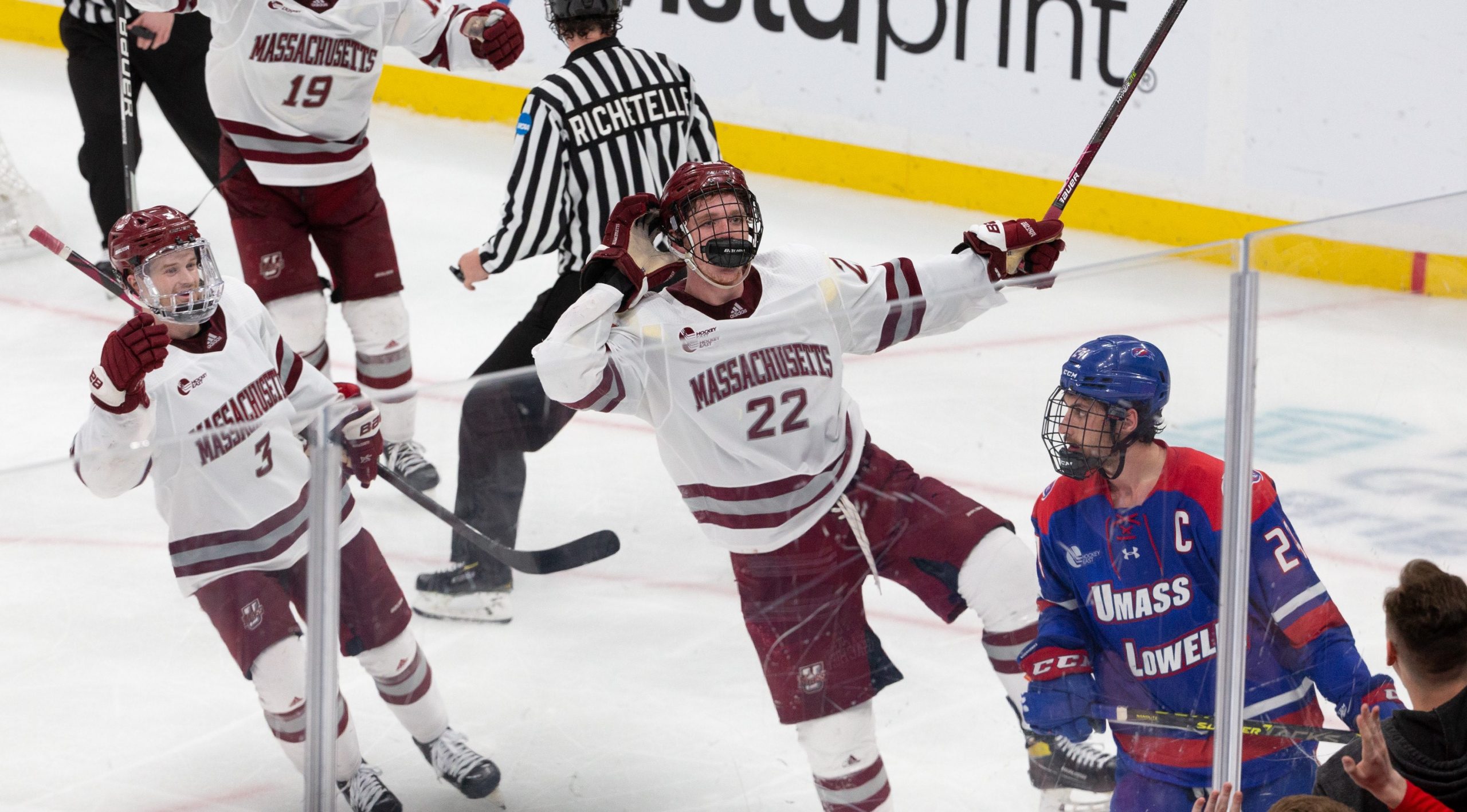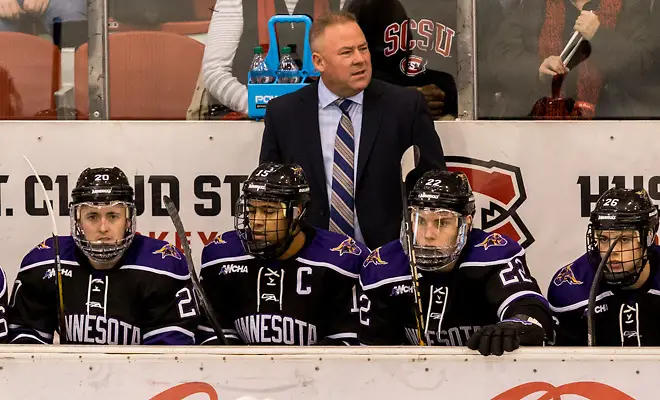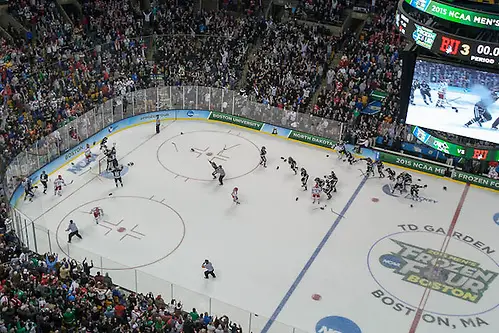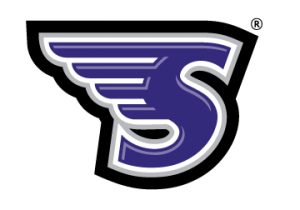BOSTON — Denver advanced to the NCAA championship game Thursday with a 3-2 overtime victory against Michigan at TD Garden. Here are photos:
2022 Men's Frozen Four semifinals: Denver vs. Michigan
1 of 64
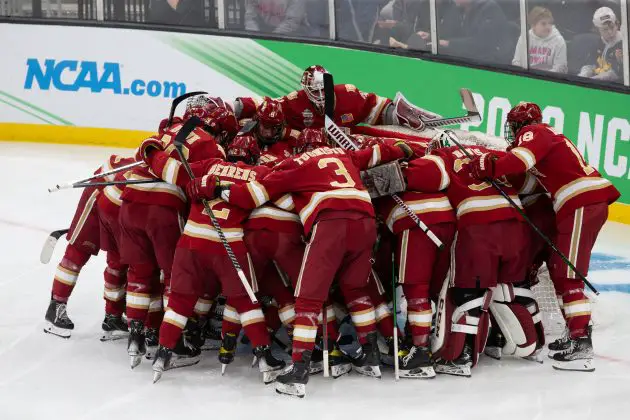
BOSTON, MA - APRIL 7: Denver plays Michigan during game one of the 2022 NCAA Division I Men's Hockey Frozen Four Championship semifinal at TD Garden on April 7, 2022 in Boston, Massachusetts. (Photo by Rich Gagnon/USCHO)
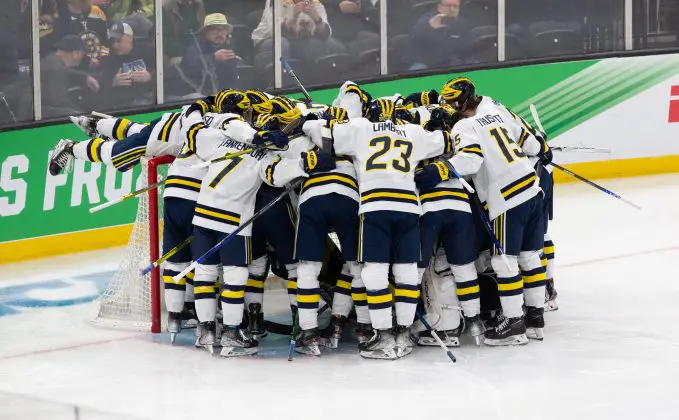
BOSTON, MA - APRIL 7: Denver plays Michigan during game one of the 2022 NCAA Division I Men's Hockey Frozen Four Championship semifinal at TD Garden on April 7, 2022 in Boston, Massachusetts. (Photo by Rich Gagnon/USCHO)
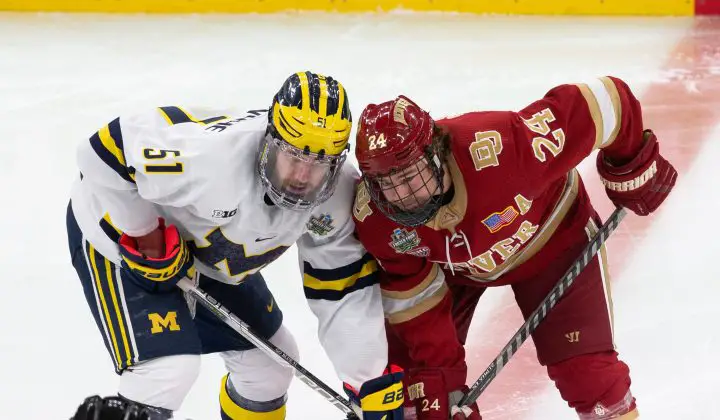
BOSTON, MA - APRIL 7: Denver plays Michigan during game one of the 2022 NCAA Division I Men's Hockey Frozen Four Championship semifinal at TD Garden on April 7, 2022 in Boston, Massachusetts. (Photo by Rich Gagnon/USCHO)
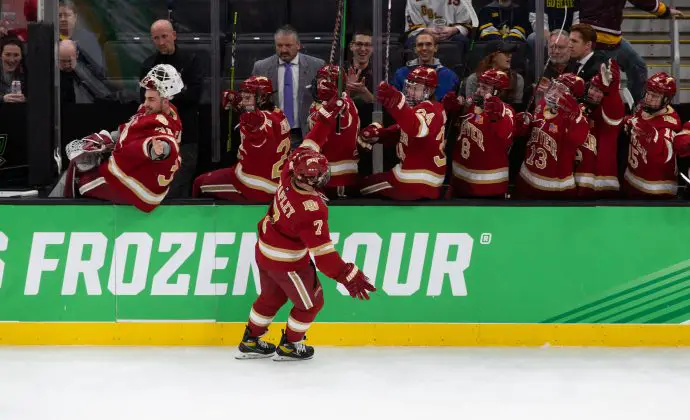
BOSTON, MA - APRIL 7: Denver plays Michigan during game one of the 2022 NCAA Division I Men's Hockey Frozen Four Championship semifinal at TD Garden on April 7, 2022 in Boston, Massachusetts. (Photo by Rich Gagnon/USCHO)
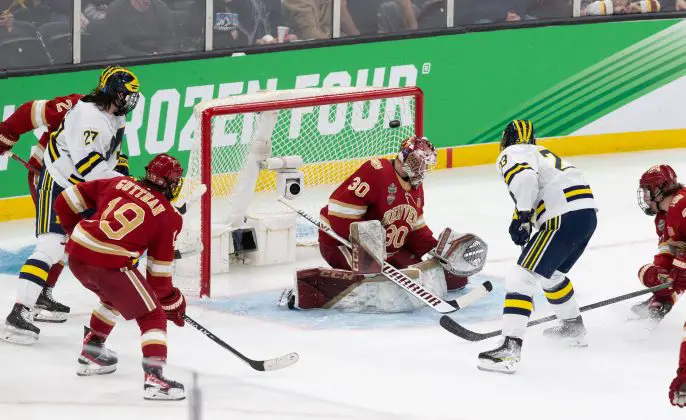
BOSTON, MA - APRIL 7: Denver plays Michigan during game one of the 2022 NCAA Division I Men's Hockey Frozen Four Championship semifinal at TD Garden on April 7, 2022 in Boston, Massachusetts. (Photo by Rich Gagnon/USCHO)
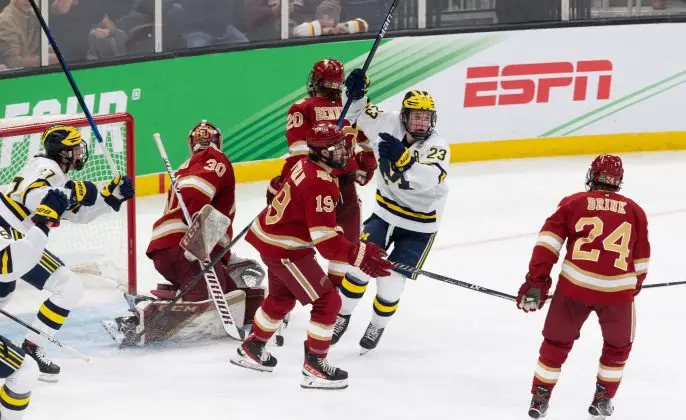
BOSTON, MA - APRIL 7: Denver plays Michigan during game one of the 2022 NCAA Division I Men's Hockey Frozen Four Championship semifinal at TD Garden on April 7, 2022 in Boston, Massachusetts. (Photo by Rich Gagnon/USCHO)
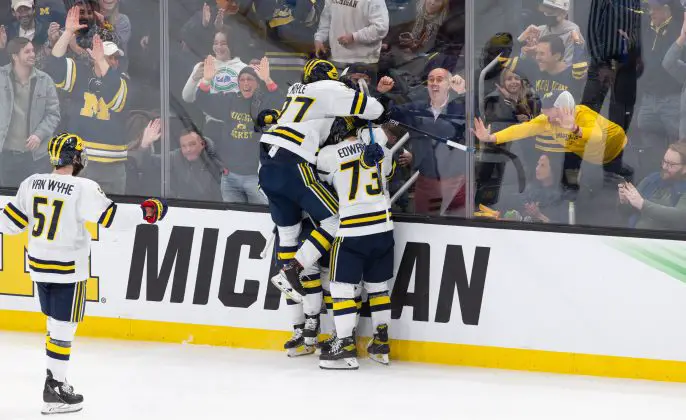
BOSTON, MA - APRIL 7: Denver plays Michigan during game one of the 2022 NCAA Division I Men's Hockey Frozen Four Championship semifinal at TD Garden on April 7, 2022 in Boston, Massachusetts. (Photo by Rich Gagnon/USCHO)
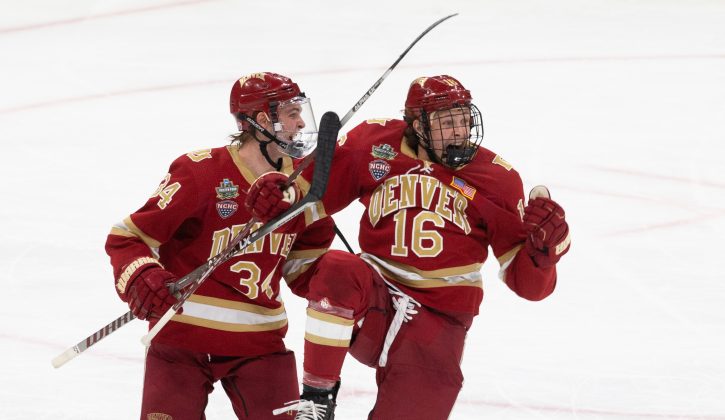
BOSTON, MA - APRIL 7: Denver plays Michigan during game one of the 2022 NCAA Division I Men's Hockey Frozen Four Championship semifinal at TD Garden on April 7, 2022 in Boston, Massachusetts. (Photo by Rich Gagnon/USCHO)
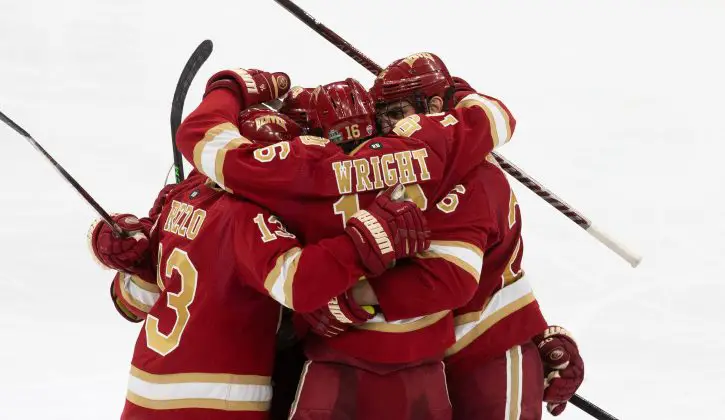
BOSTON, MA - APRIL 7: Denver plays Michigan during game one of the 2022 NCAA Division I Men's Hockey Frozen Four Championship semifinal at TD Garden on April 7, 2022 in Boston, Massachusetts. (Photo by Rich Gagnon/USCHO)
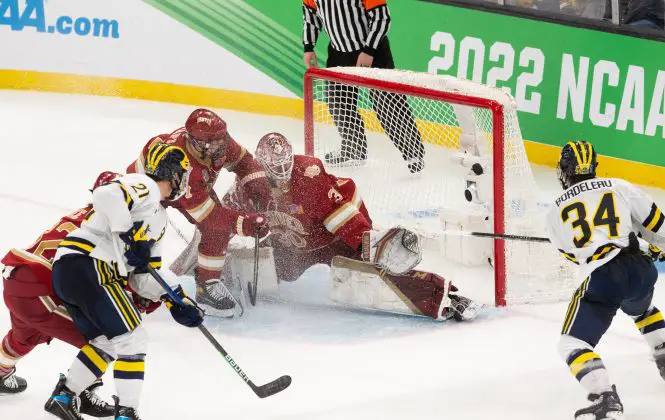
BOSTON, MA - APRIL 7: Denver plays Michigan during game one of the 2022 NCAA Division I Men's Hockey Frozen Four Championship semifinal at TD Garden on April 7, 2022 in Boston, Massachusetts. (Photo by Rich Gagnon/USCHO)
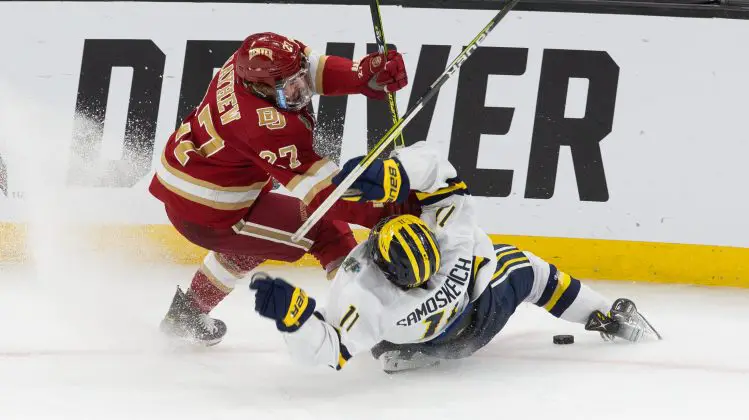
BOSTON, MA - APRIL 7: Denver plays Michigan during game one of the 2022 NCAA Division I Men's Hockey Frozen Four Championship semifinal at TD Garden on April 7, 2022 in Boston, Massachusetts. (Photo by Rich Gagnon/USCHO)
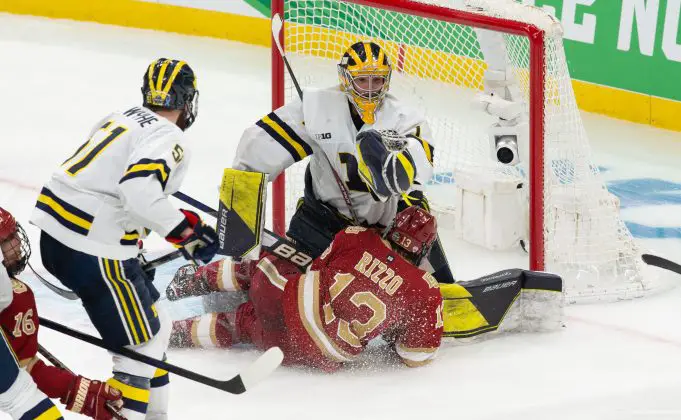
BOSTON, MA - APRIL 7: Denver plays Michigan during game one of the 2022 NCAA Division I Men's Hockey Frozen Four Championship semifinal at TD Garden on April 7, 2022 in Boston, Massachusetts. (Photo by Rich Gagnon/USCHO)
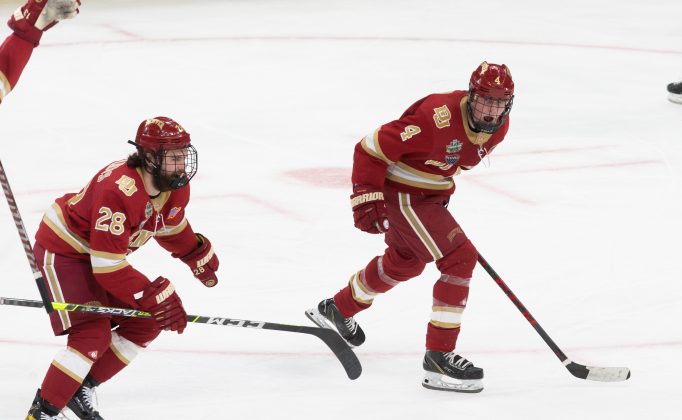
BOSTON, MA - APRIL 7: Denver plays Michigan during game one of the 2022 NCAA Division I Men's Hockey Frozen Four Championship semifinal at TD Garden on April 7, 2022 in Boston, Massachusetts. (Photo by Rich Gagnon/USCHO)
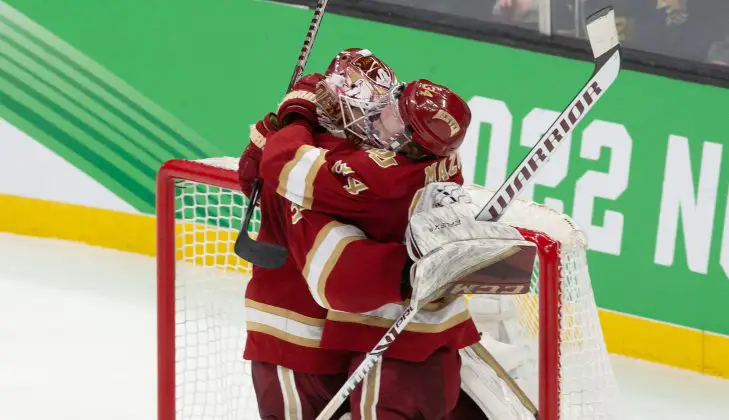
BOSTON, MA - APRIL 7: Denver plays Michigan during game one of the 2022 NCAA Division I Men's Hockey Frozen Four Championship semifinal at TD Garden on April 7, 2022 in Boston, Massachusetts. (Photo by Rich Gagnon/USCHO)
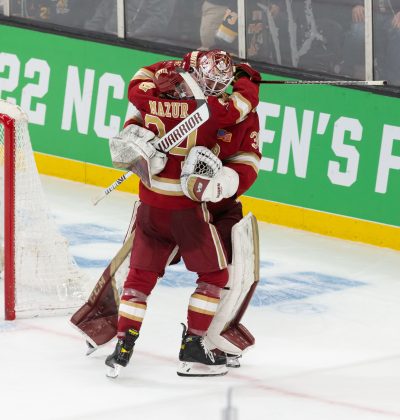
BOSTON, MA - APRIL 7: Denver plays Michigan during game one of the 2022 NCAA Division I Men's Hockey Frozen Four Championship semifinal at TD Garden on April 7, 2022 in Boston, Massachusetts. (Photo by Rich Gagnon/USCHO)
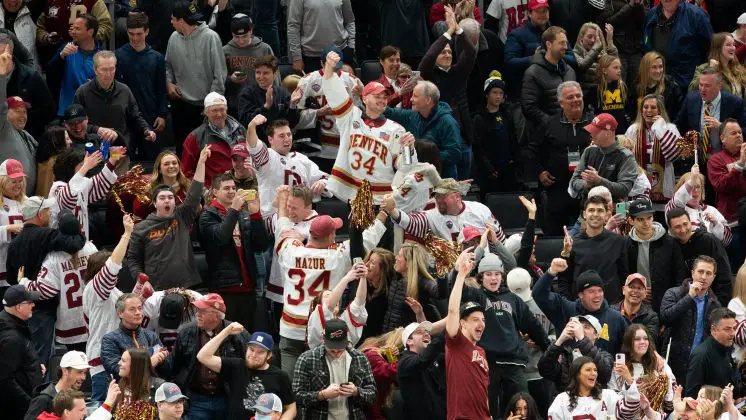
BOSTON, MA - APRIL 7: Denver plays Michigan during game one of the 2022 NCAA Division I Men's Hockey Frozen Four Championship semifinal at TD Garden on April 7, 2022 in Boston, Massachusetts. (Photo by Rich Gagnon/USCHO)
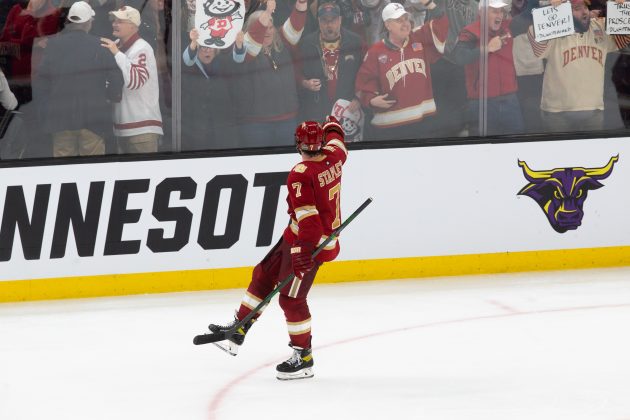
BOSTON, MA - APRIL 7: Denver plays Michigan during game one of the 2022 NCAA Division I Men's Hockey Frozen Four Championship semifinal at TD Garden on April 7, 2022 in Boston, Massachusetts. (Photo by Rich Gagnon/USCHO)
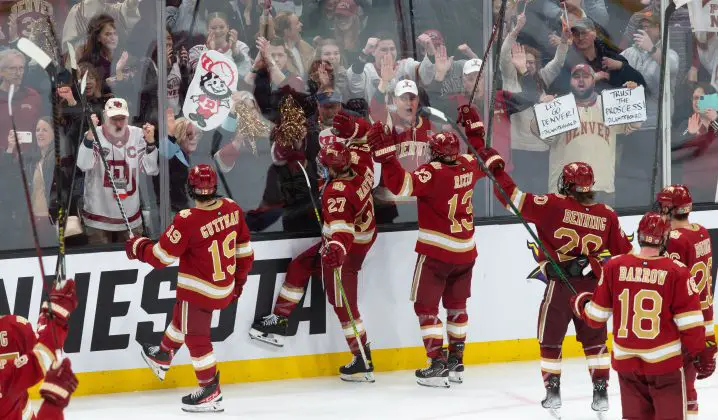
BOSTON, MA - APRIL 7: Denver plays Michigan during game one of the 2022 NCAA Division I Men's Hockey Frozen Four Championship semifinal at TD Garden on April 7, 2022 in Boston, Massachusetts. (Photo by Rich Gagnon/USCHO)
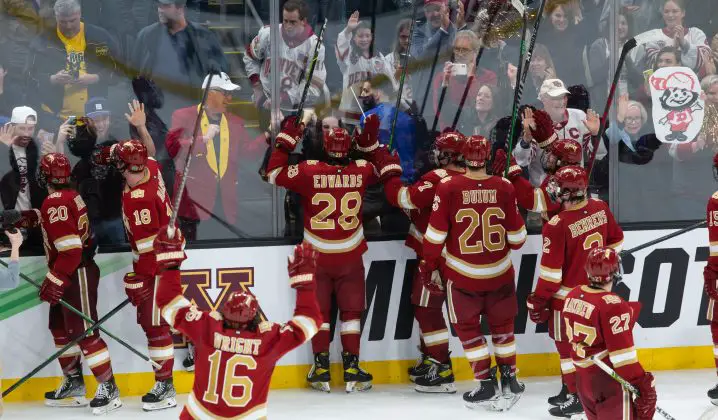
BOSTON, MA - APRIL 7: Denver plays Michigan during game one of the 2022 NCAA Division I Men's Hockey Frozen Four Championship semifinal at TD Garden on April 7, 2022 in Boston, Massachusetts. (Photo by Rich Gagnon/USCHO)
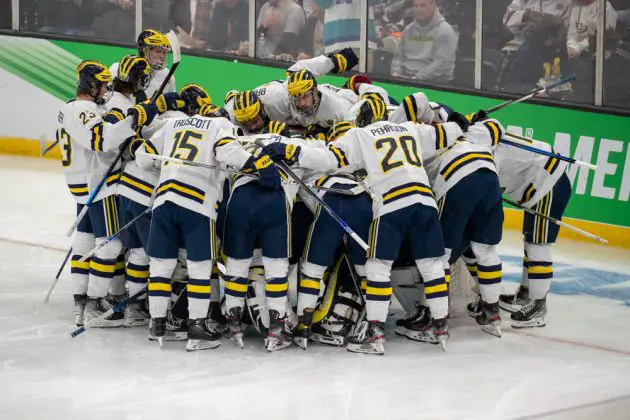
7 Apr 22: The University of Michigan Wolverines play against the Denver University Pioneers in a 2022 Division I Men’s Frozen Four semifinal game at TD Garden in Boston, MA.
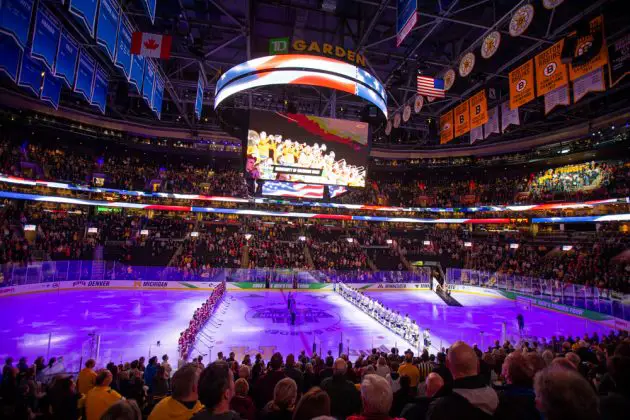
7 Apr 22: The University of Michigan Wolverines play against the Denver University Pioneers in a 2022 Division I Men’s Frozen Four semifinal game at TD Garden in Boston, MA.
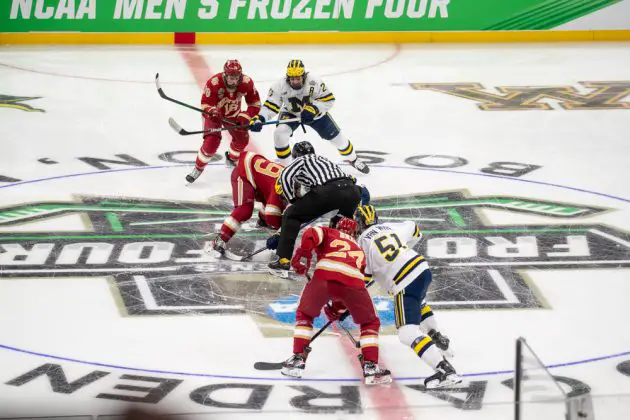
7 Apr 22: The University of Michigan Wolverines play against the Denver University Pioneers in a 2022 Division I Men’s Frozen Four semifinal game at TD Garden in Boston, MA.
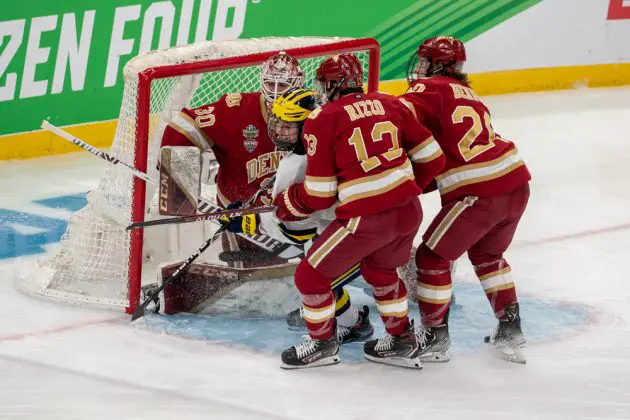
7 Apr 22: The University of Michigan Wolverines play against the Denver University Pioneers in a 2022 Division I Men’s Frozen Four semifinal game at TD Garden in Boston, MA.
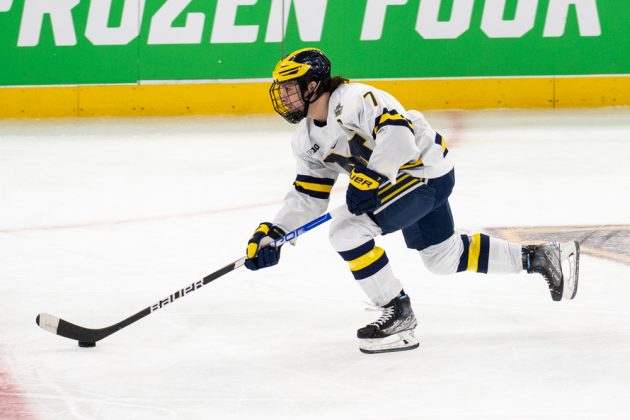
7 Apr 22: The University of Michigan Wolverines play against the Denver University Pioneers in a 2022 Division I Men’s Frozen Four semifinal game at TD Garden in Boston, MA.
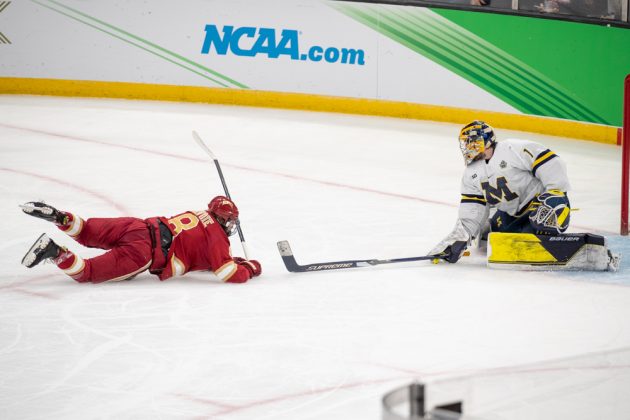
7 Apr 22: The University of Michigan Wolverines play against the Denver University Pioneers in a 2022 Division I Men’s Frozen Four semifinal game at TD Garden in Boston, MA.
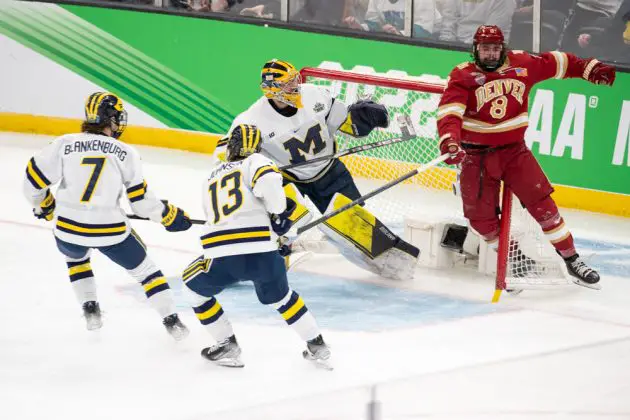
7 Apr 22: The University of Michigan Wolverines play against the Denver University Pioneers in a 2022 Division I Men’s Frozen Four semifinal game at TD Garden in Boston, MA.
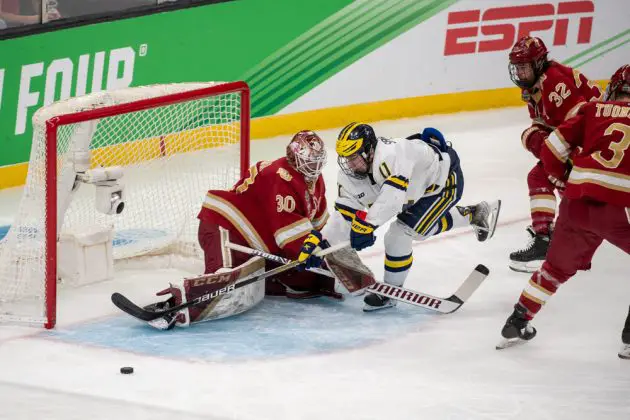
7 Apr 22: The University of Michigan Wolverines play against the Denver University Pioneers in a 2022 Division I Men’s Frozen Four semifinal game at TD Garden in Boston, MA.
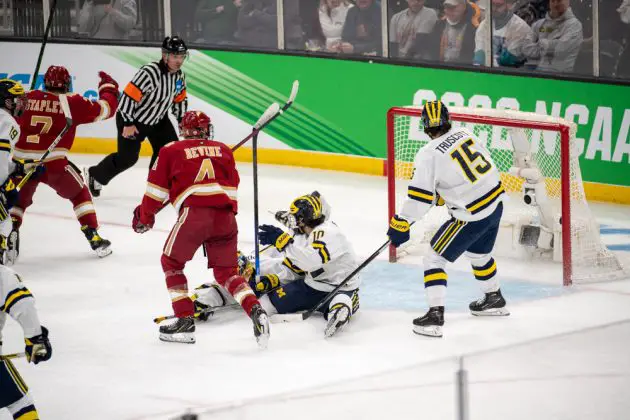
7 Apr 22: The University of Michigan Wolverines play against the Denver University Pioneers in a 2022 Division I Men’s Frozen Four semifinal game at TD Garden in Boston, MA.
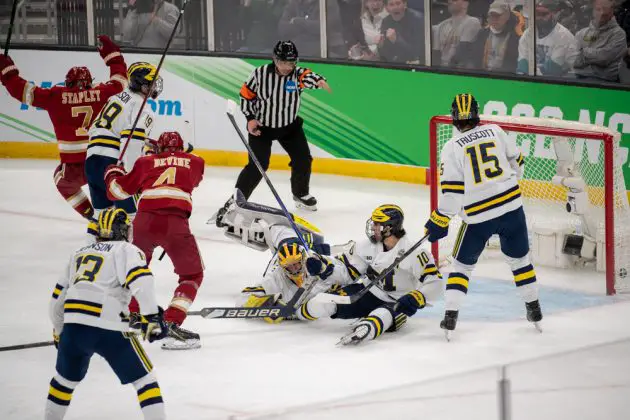
7 Apr 22: The University of Michigan Wolverines play against the Denver University Pioneers in a 2022 Division I Men’s Frozen Four semifinal game at TD Garden in Boston, MA.
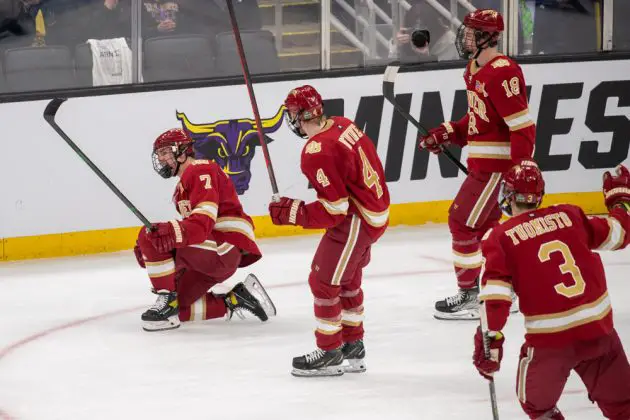
7 Apr 22: The University of Michigan Wolverines play against the Denver University Pioneers in a 2022 Division I Men’s Frozen Four semifinal game at TD Garden in Boston, MA.
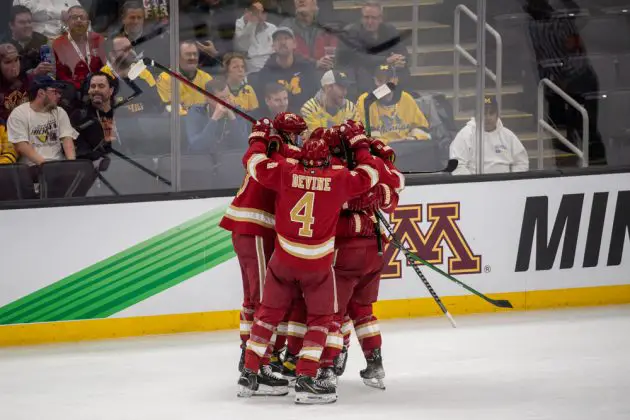
7 Apr 22: The University of Michigan Wolverines play against the Denver University Pioneers in a 2022 Division I Men’s Frozen Four semifinal game at TD Garden in Boston, MA.
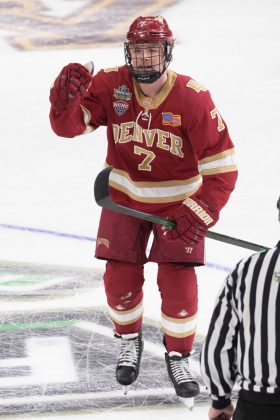
7 Apr 22: The University of Michigan Wolverines play against the Denver University Pioneers in a 2022 Division I Men’s Frozen Four semifinal game at TD Garden in Boston, MA.
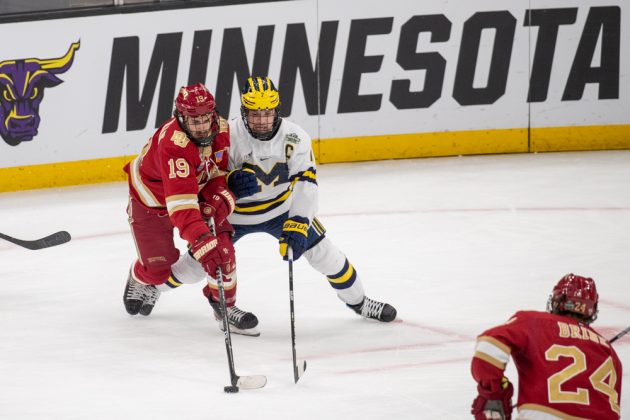
7 Apr 22: The University of Michigan Wolverines play against the Denver University Pioneers in a 2022 Division I Men’s Frozen Four semifinal game at TD Garden in Boston, MA.
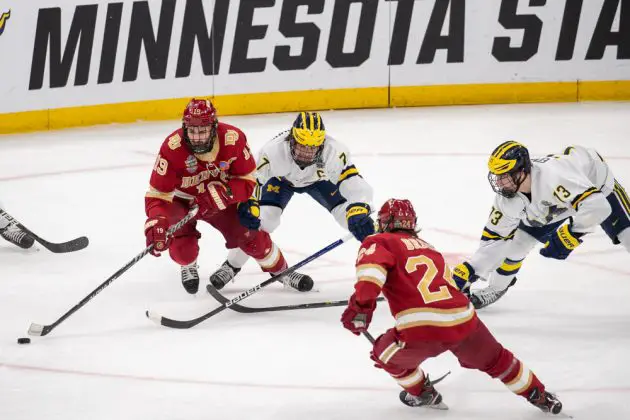
7 Apr 22: The University of Michigan Wolverines play against the Denver University Pioneers in a 2022 Division I Men’s Frozen Four semifinal game at TD Garden in Boston, MA.
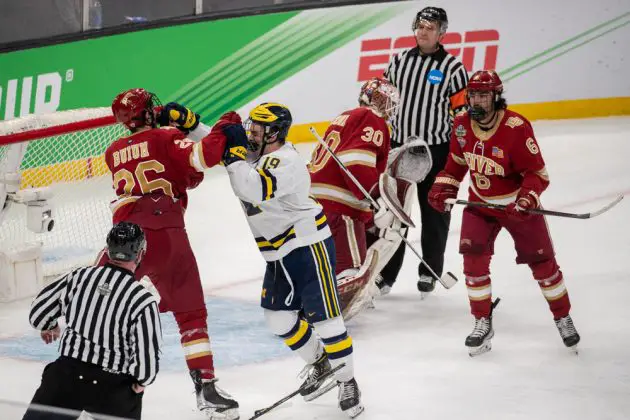
7 Apr 22: The University of Michigan Wolverines play against the Denver University Pioneers in a 2022 Division I Men’s Frozen Four semifinal game at TD Garden in Boston, MA.
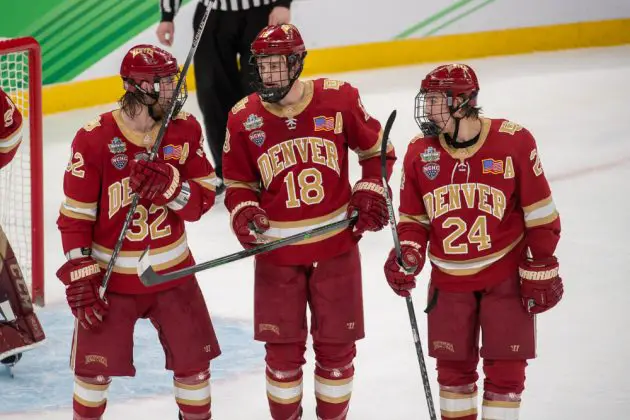
7 Apr 22: The University of Michigan Wolverines play against the Denver University Pioneers in a 2022 Division I Men’s Frozen Four semifinal game at TD Garden in Boston, MA.
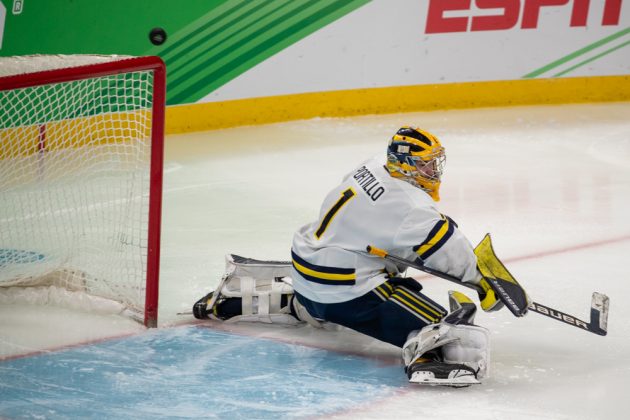
7 Apr 22: The University of Michigan Wolverines play against the Denver University Pioneers in a 2022 Division I Men’s Frozen Four semifinal game at TD Garden in Boston, MA.
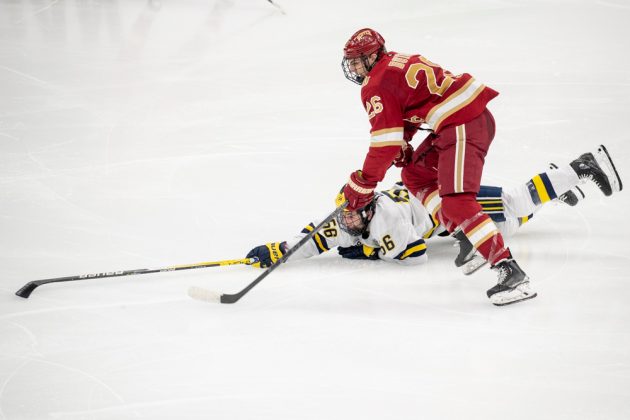
7 Apr 22: The University of Michigan Wolverines play against the Denver University Pioneers in a 2022 Division I Men’s Frozen Four semifinal game at TD Garden in Boston, MA.
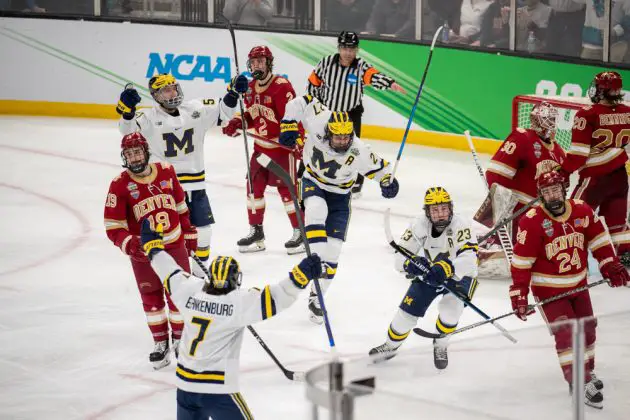
7 Apr 22: The University of Michigan Wolverines play against the Denver University Pioneers in a 2022 Division I Men’s Frozen Four semifinal game at TD Garden in Boston, MA.
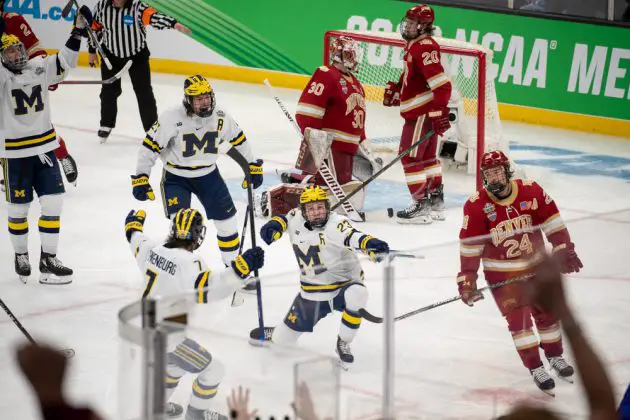
7 Apr 22: The University of Michigan Wolverines play against the Denver University Pioneers in a 2022 Division I Men’s Frozen Four semifinal game at TD Garden in Boston, MA.
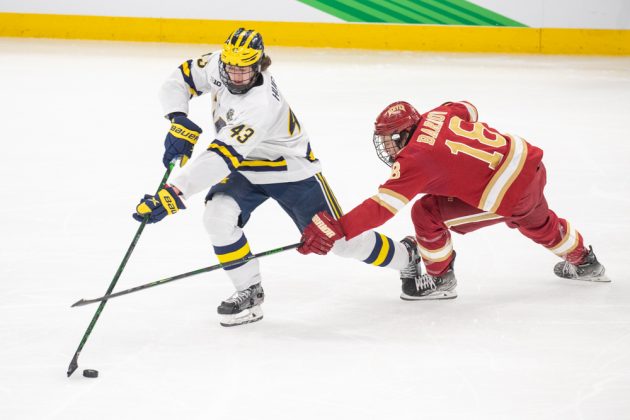
7 Apr 22: The University of Michigan Wolverines play against the Denver University Pioneers in a 2022 Division I Men’s Frozen Four semifinal game at TD Garden in Boston, MA.
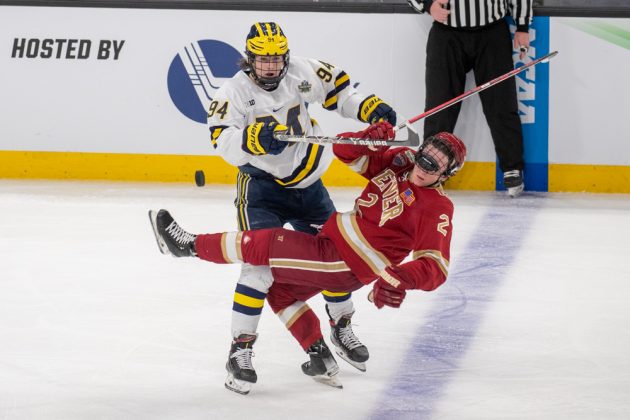
7 Apr 22: The University of Michigan Wolverines play against the Denver University Pioneers in a 2022 Division I Men’s Frozen Four semifinal game at TD Garden in Boston, MA.
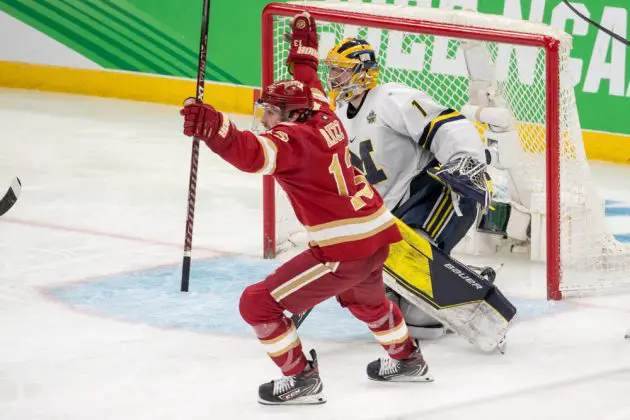
7 Apr 22: The University of Michigan Wolverines play against the Denver University Pioneers in a 2022 Division I Men’s Frozen Four semifinal game at TD Garden in Boston, MA.
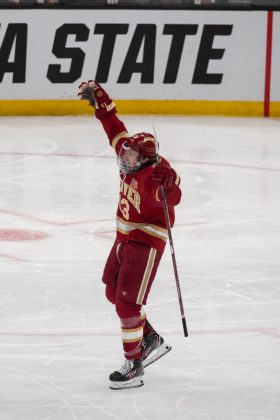
7 Apr 22: The University of Michigan Wolverines play against the Denver University Pioneers in a 2022 Division I Men’s Frozen Four semifinal game at TD Garden in Boston, MA.
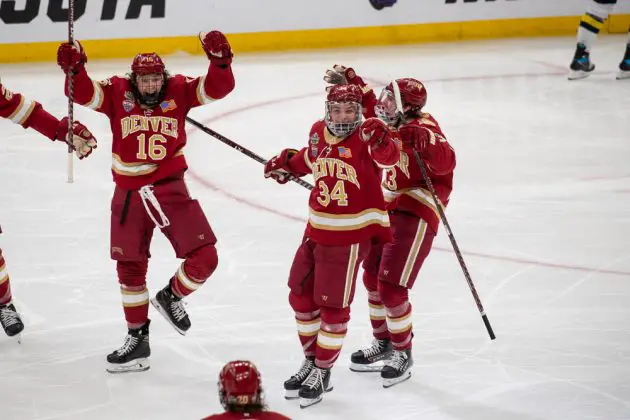
7 Apr 22: The University of Michigan Wolverines play against the Denver University Pioneers in a 2022 Division I Men’s Frozen Four semifinal game at TD Garden in Boston, MA.
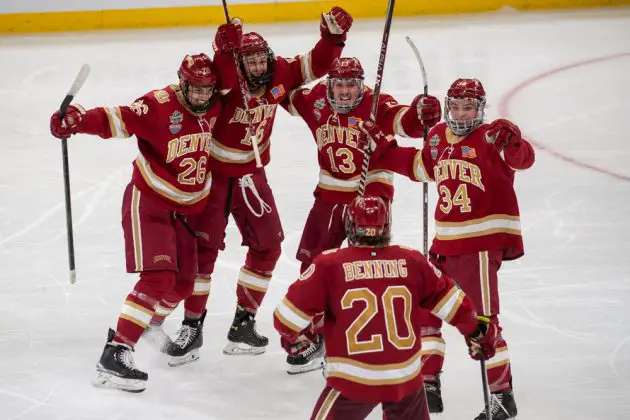
7 Apr 22: The University of Michigan Wolverines play against the Denver University Pioneers in a 2022 Division I Men’s Frozen Four semifinal game at TD Garden in Boston, MA.
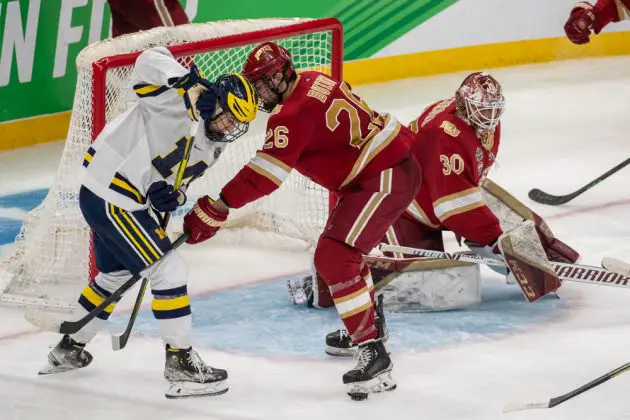
7 Apr 22: The University of Michigan Wolverines play against the Denver University Pioneers in a 2022 Division I Men’s Frozen Four semifinal game at TD Garden in Boston, MA.
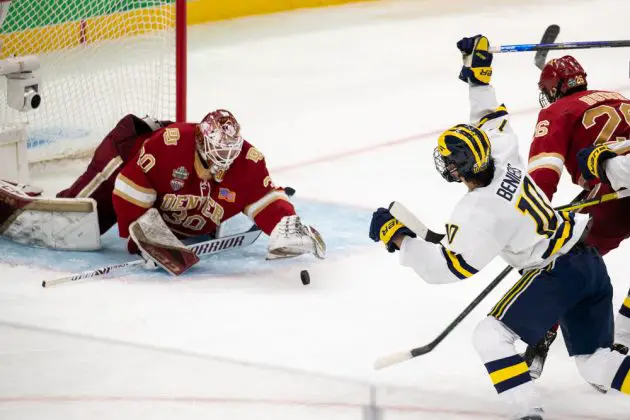
7 Apr 22: The University of Michigan Wolverines play against the Denver University Pioneers in a 2022 Division I Men’s Frozen Four semifinal game at TD Garden in Boston, MA.
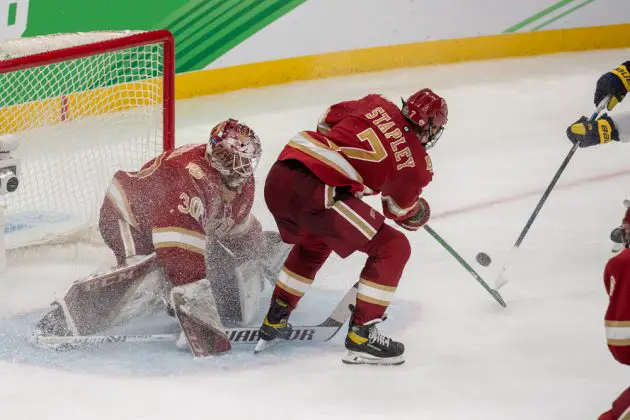
7 Apr 22: The University of Michigan Wolverines play against the Denver University Pioneers in a 2022 Division I Men’s Frozen Four semifinal game at TD Garden in Boston, MA.
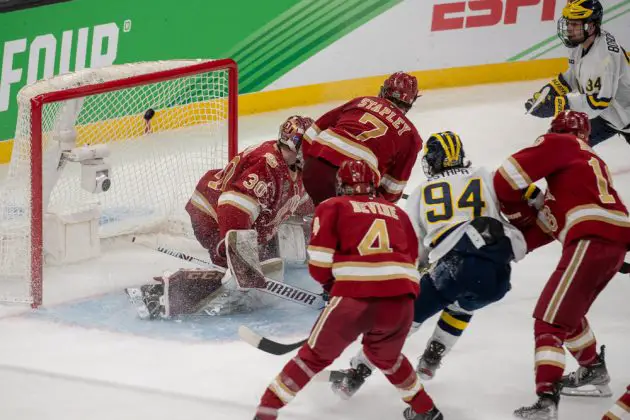
7 Apr 22: The University of Michigan Wolverines play against the Denver University Pioneers in a 2022 Division I Men’s Frozen Four semifinal game at TD Garden in Boston, MA.
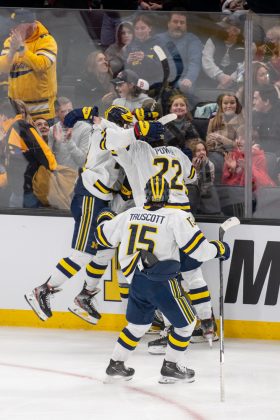
7 Apr 22: The University of Michigan Wolverines play against the Denver University Pioneers in a 2022 Division I Men’s Frozen Four semifinal game at TD Garden in Boston, MA.
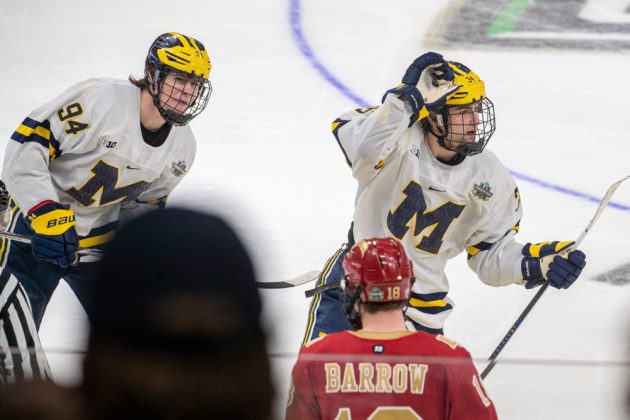
7 Apr 22: The University of Michigan Wolverines play against the Denver University Pioneers in a 2022 Division I Men’s Frozen Four semifinal game at TD Garden in Boston, MA.
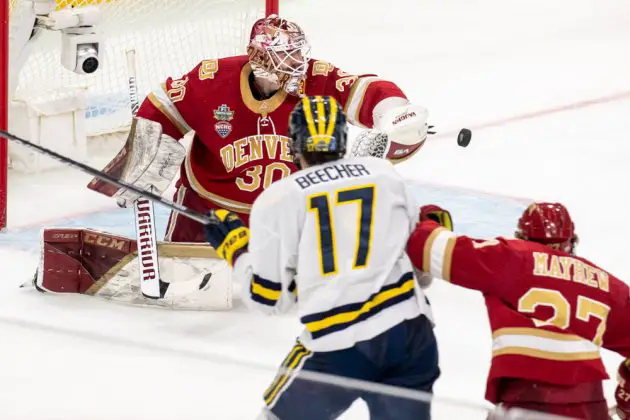
7 Apr 22: The University of Michigan Wolverines play against the Denver University Pioneers in a 2022 Division I Men’s Frozen Four semifinal game at TD Garden in Boston, MA.
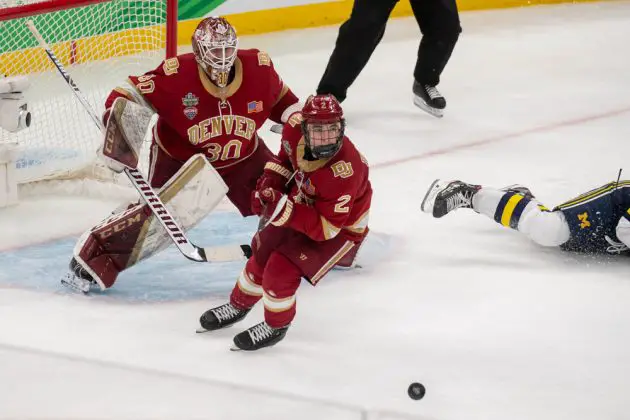
7 Apr 22: The University of Michigan Wolverines play against the Denver University Pioneers in a 2022 Division I Men’s Frozen Four semifinal game at TD Garden in Boston, MA.
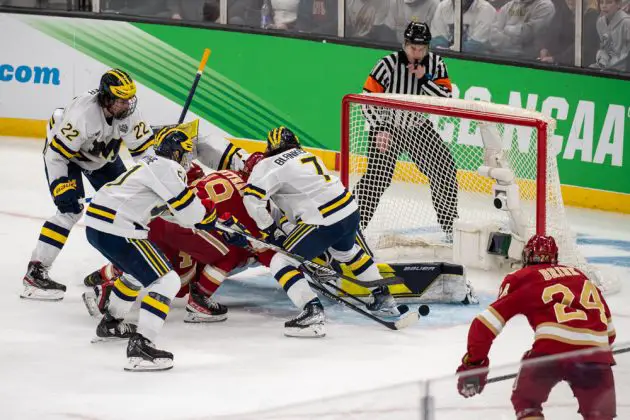
7 Apr 22: The University of Michigan Wolverines play against the Denver University Pioneers in a 2022 Division I Men’s Frozen Four semifinal game at TD Garden in Boston, MA.
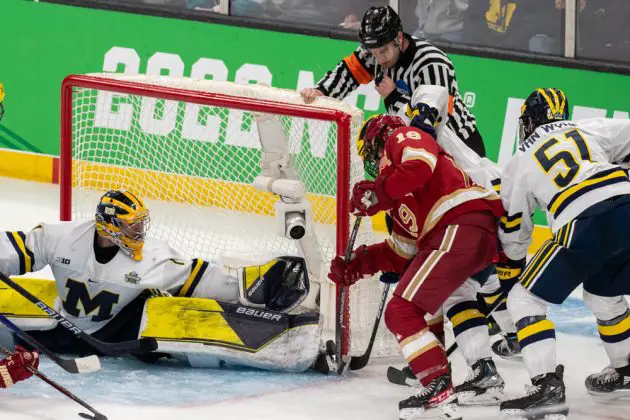
7 Apr 22: The University of Michigan Wolverines play against the Denver University Pioneers in a 2022 Division I Men’s Frozen Four semifinal game at TD Garden in Boston, MA.
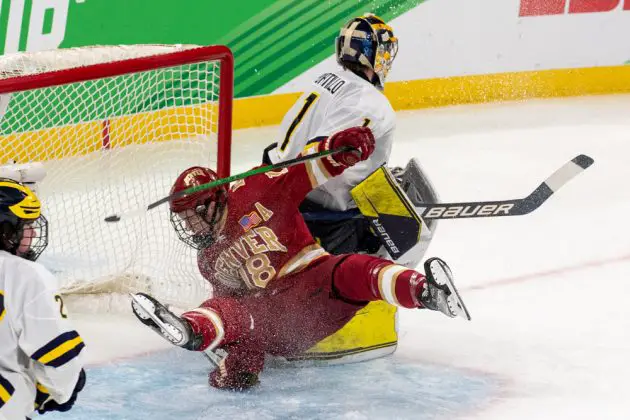
7 Apr 22: The University of Michigan Wolverines play against the Denver University Pioneers in a 2022 Division I Men’s Frozen Four semifinal game at TD Garden in Boston, MA.
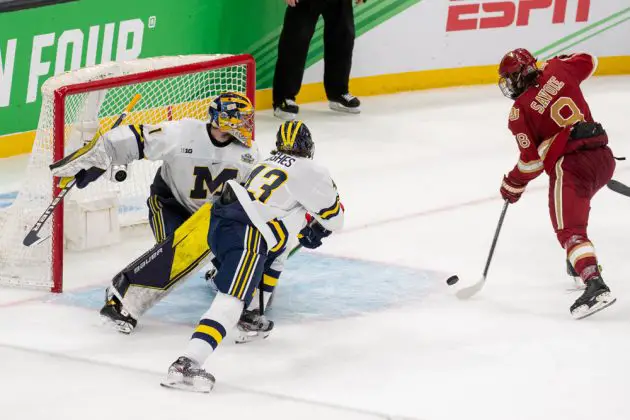
7 Apr 22: The University of Michigan Wolverines play against the Denver University Pioneers in a 2022 Division I Men’s Frozen Four semifinal game at TD Garden in Boston, MA.
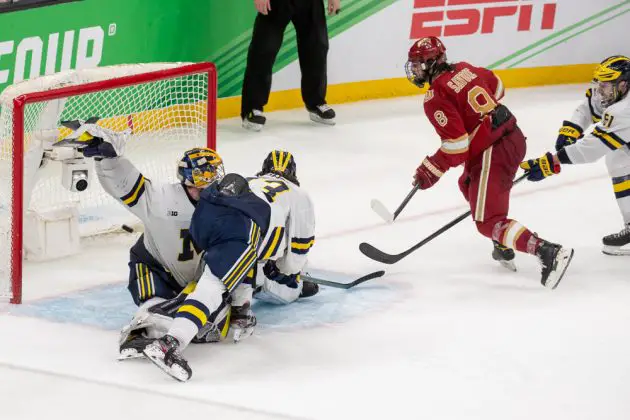
7 Apr 22: The University of Michigan Wolverines play against the Denver University Pioneers in a 2022 Division I Men’s Frozen Four semifinal game at TD Garden in Boston, MA.
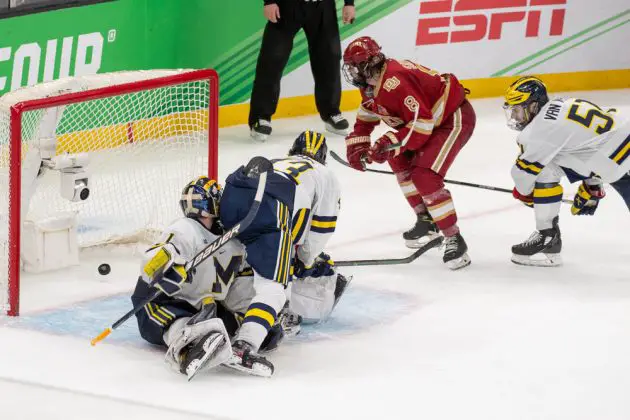
7 Apr 22: The University of Michigan Wolverines play against the Denver University Pioneers in a 2022 Division I Men’s Frozen Four semifinal game at TD Garden in Boston, MA.
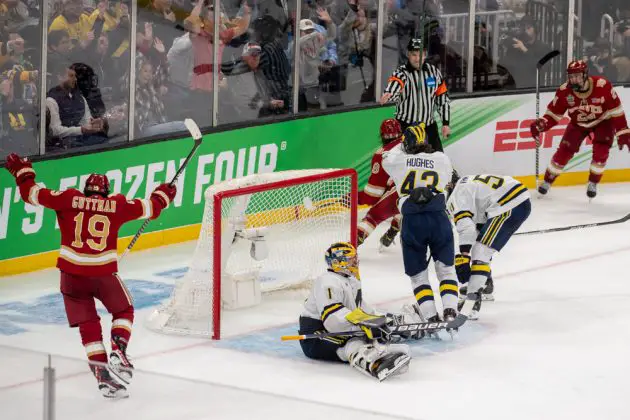
7 Apr 22: The University of Michigan Wolverines play against the Denver University Pioneers in a 2022 Division I Men’s Frozen Four semifinal game at TD Garden in Boston, MA.
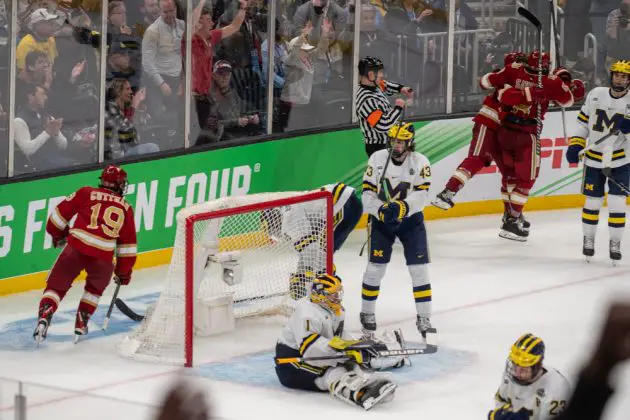
7 Apr 22: The University of Michigan Wolverines play against the Denver University Pioneers in a 2022 Division I Men’s Frozen Four semifinal game at TD Garden in Boston, MA.
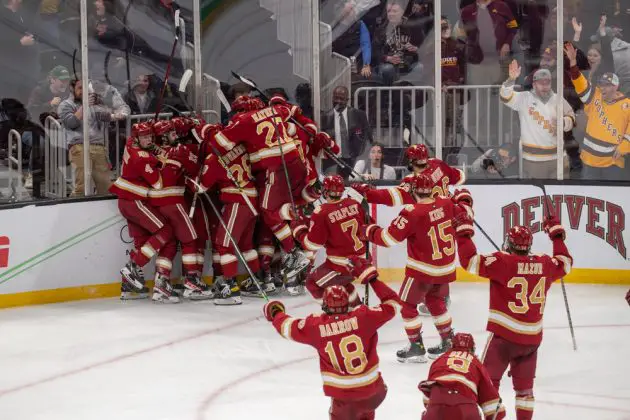
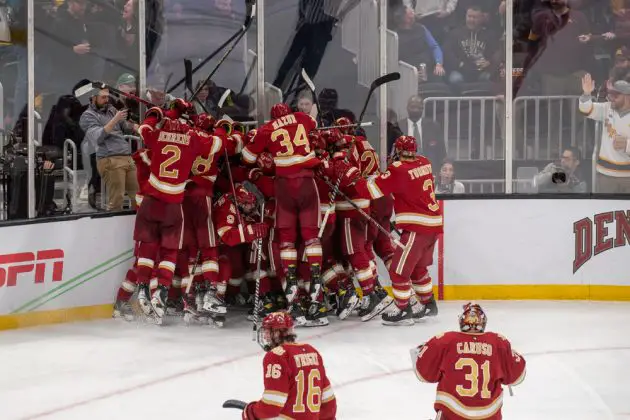

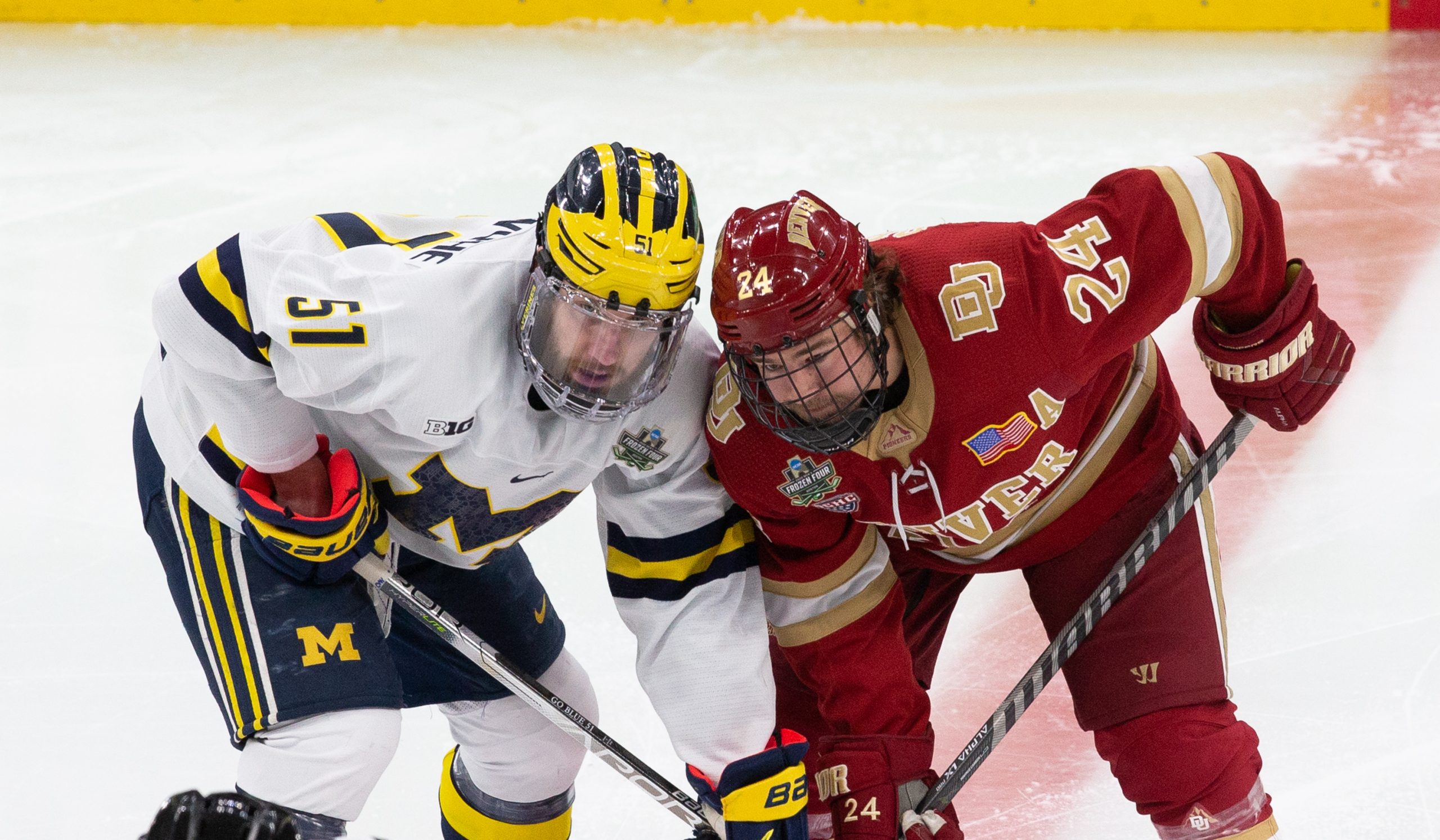
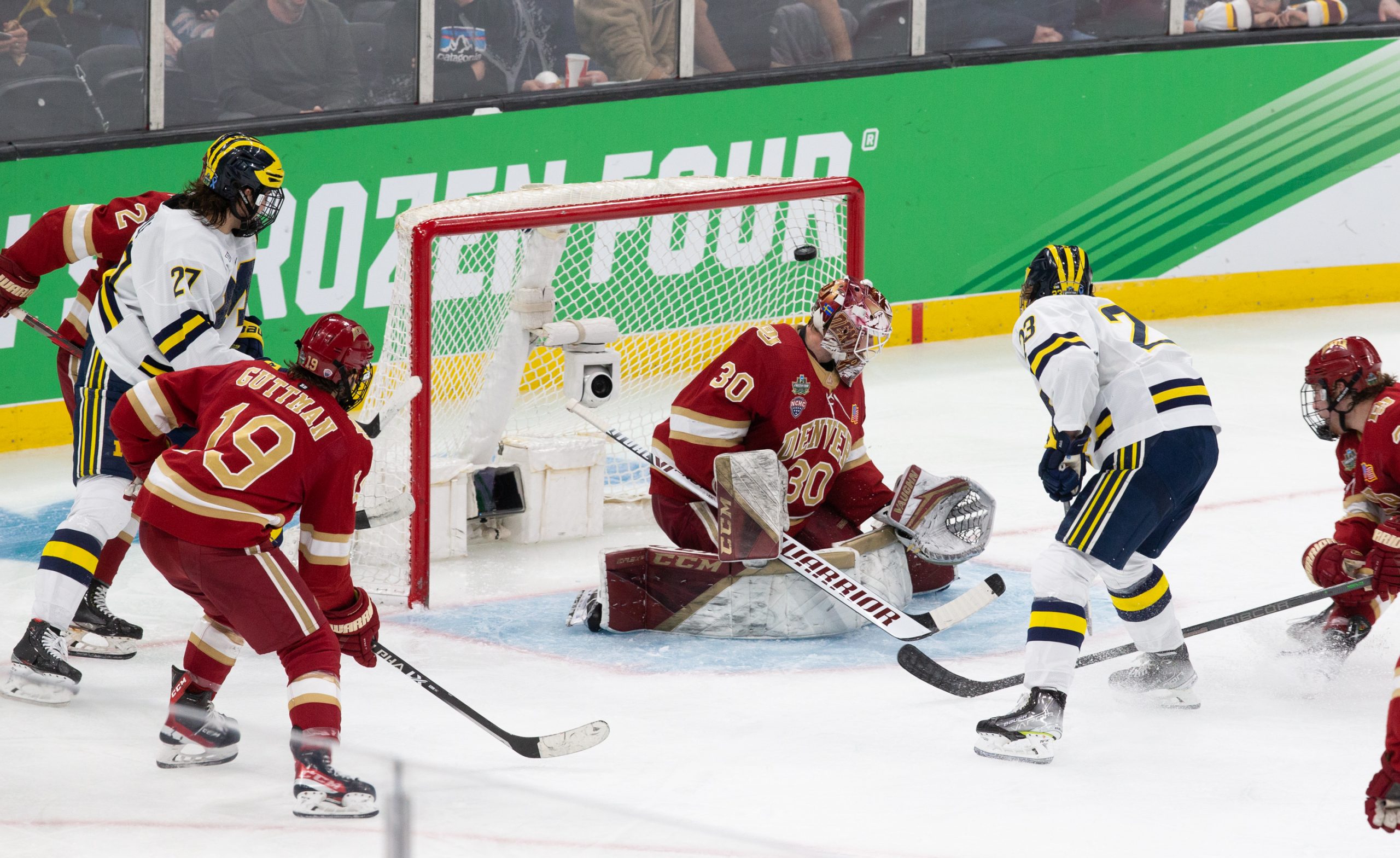
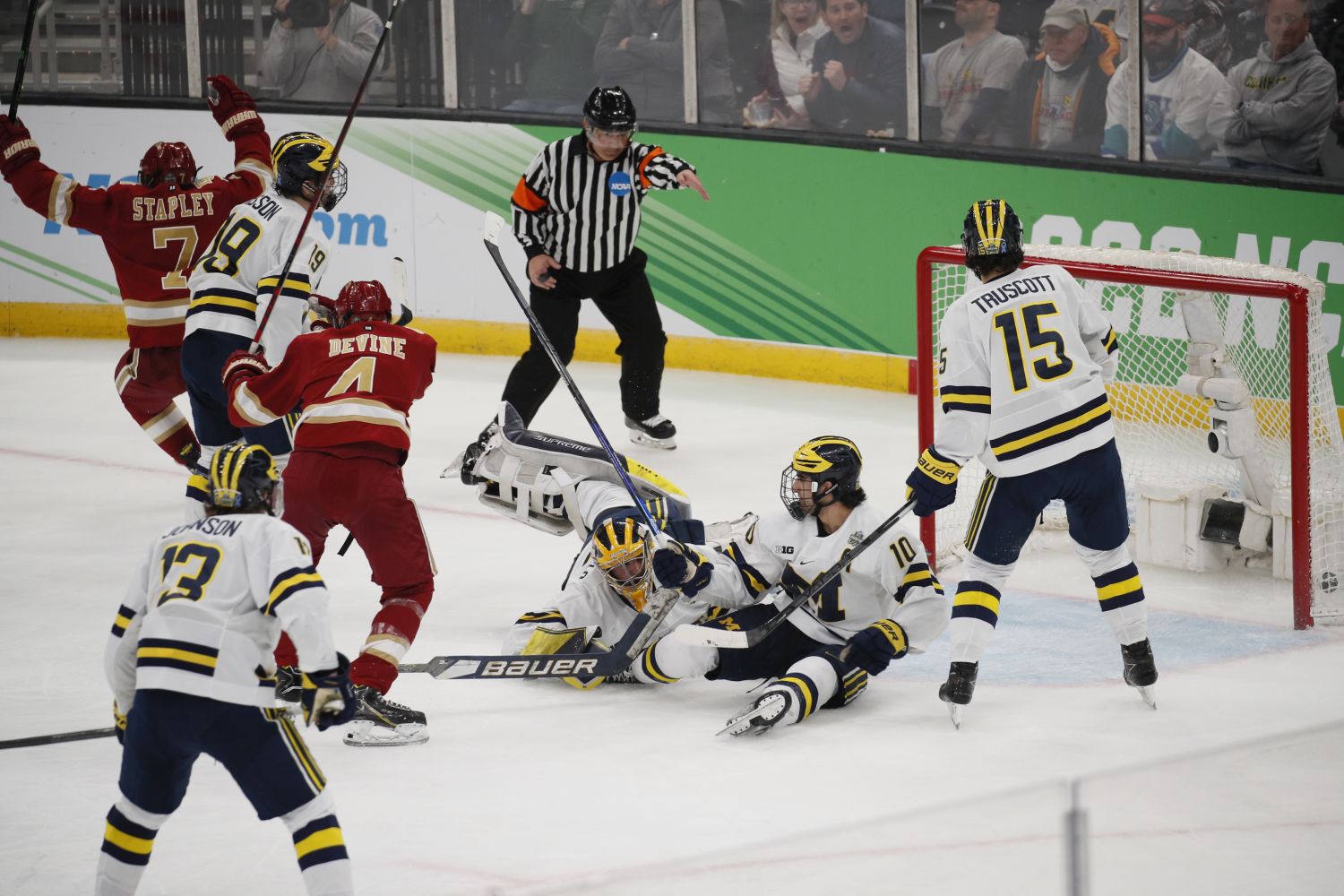
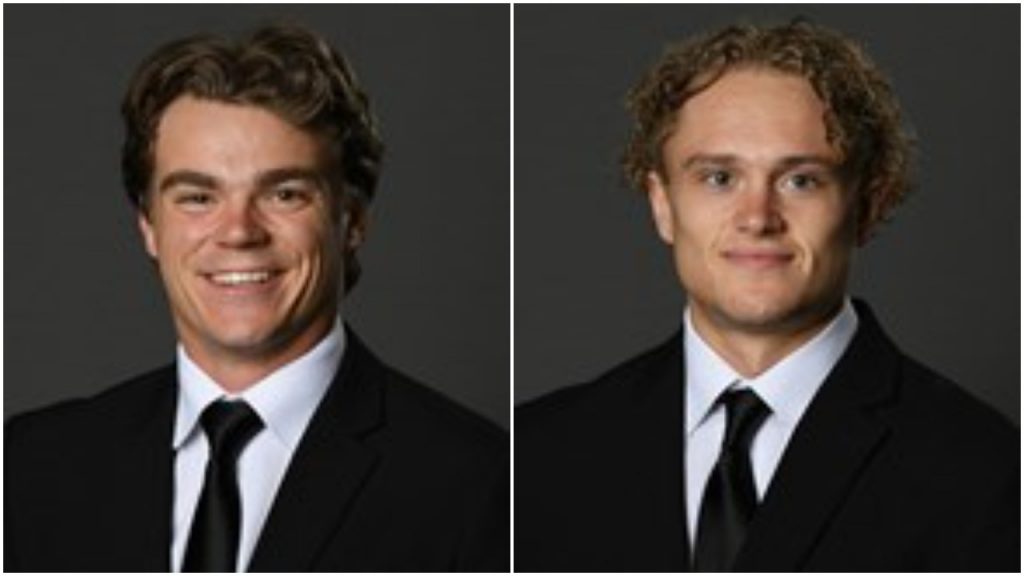
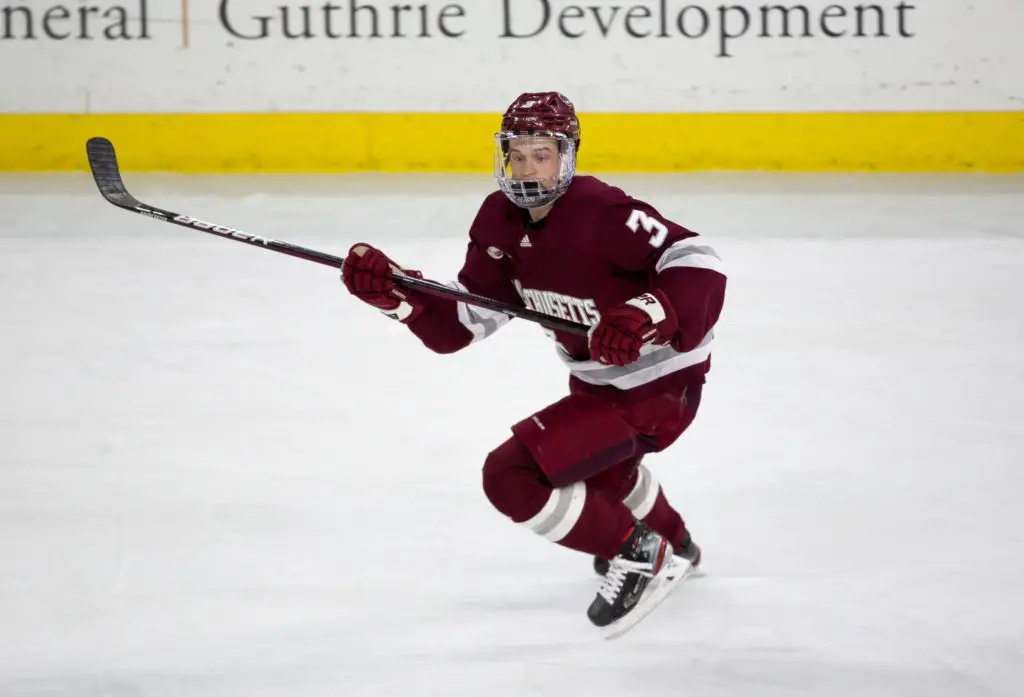
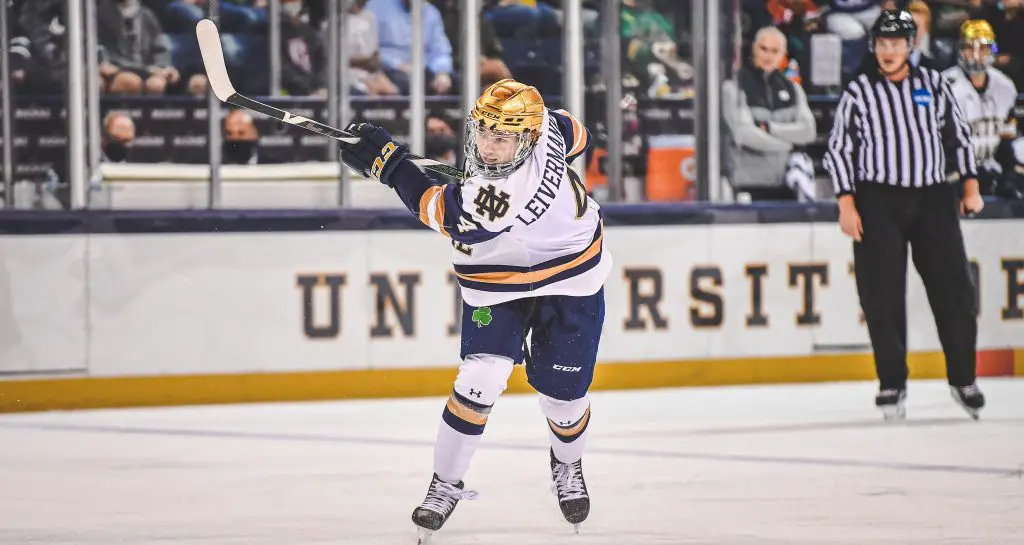

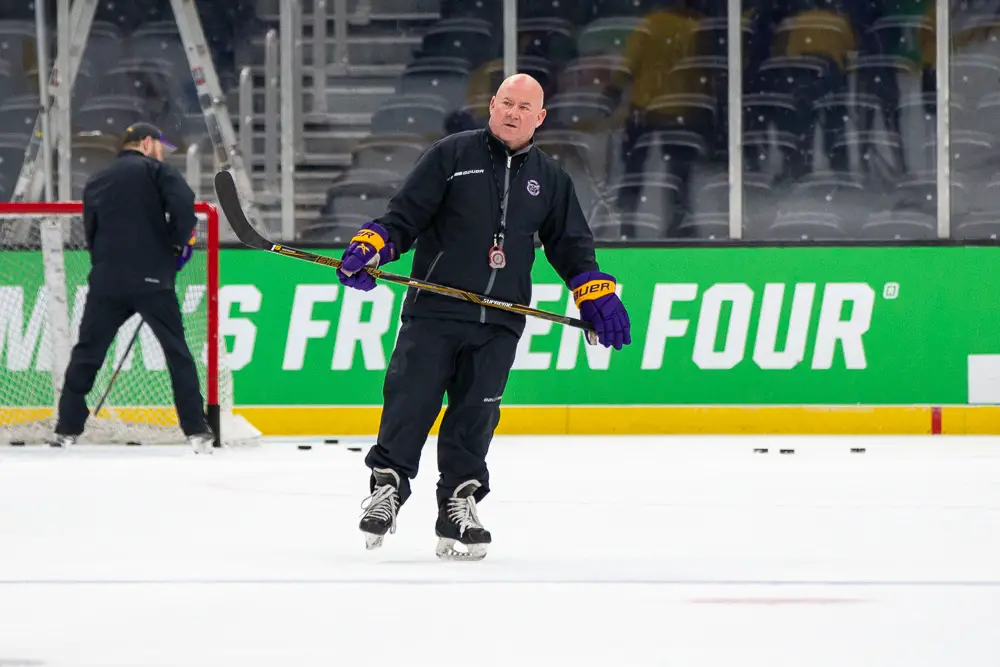
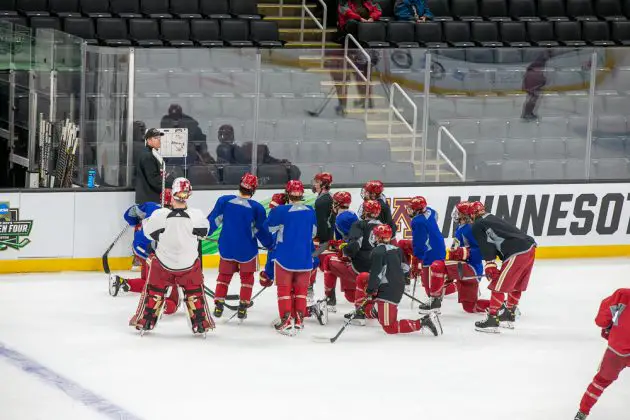
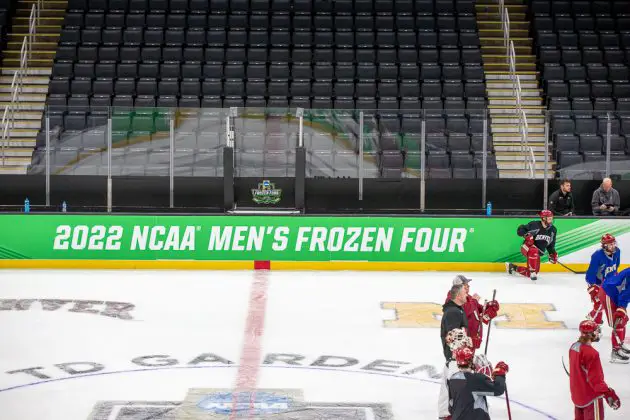
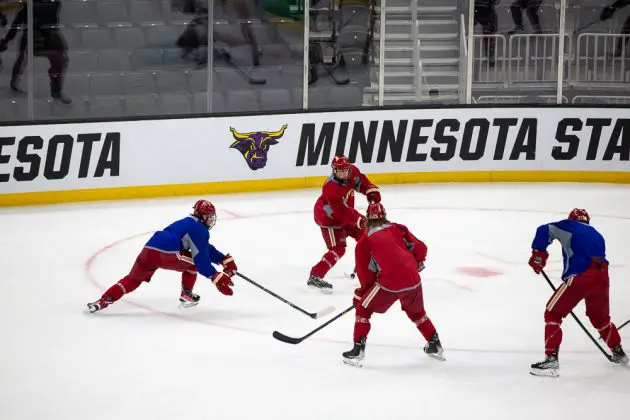
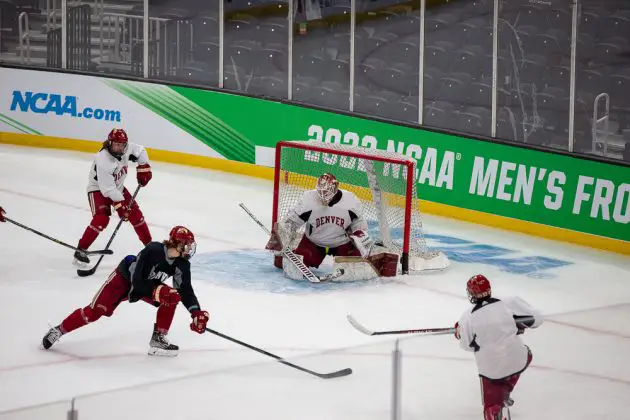
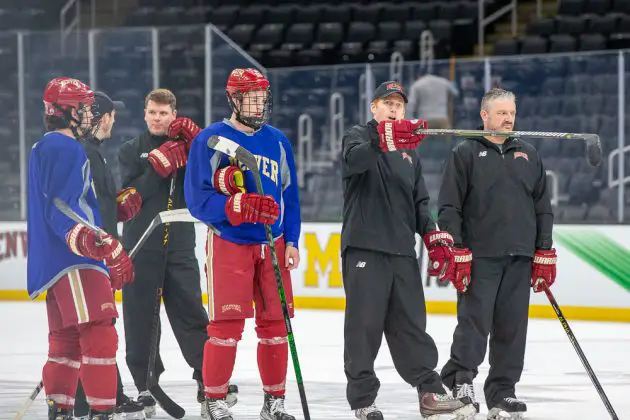
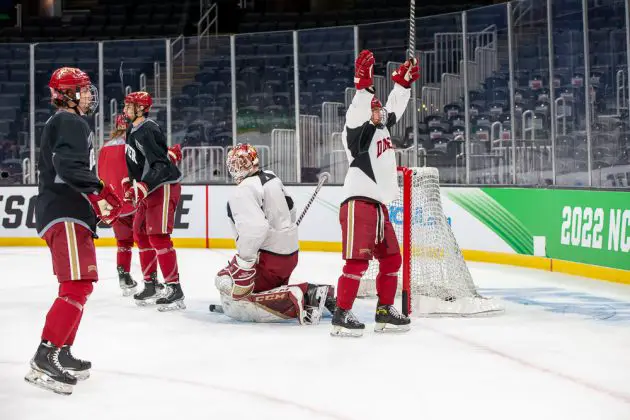
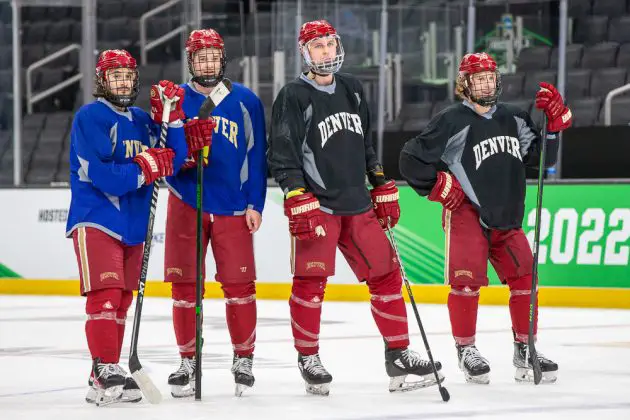
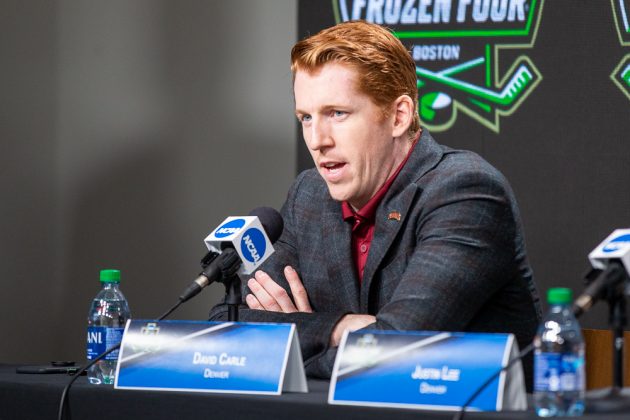
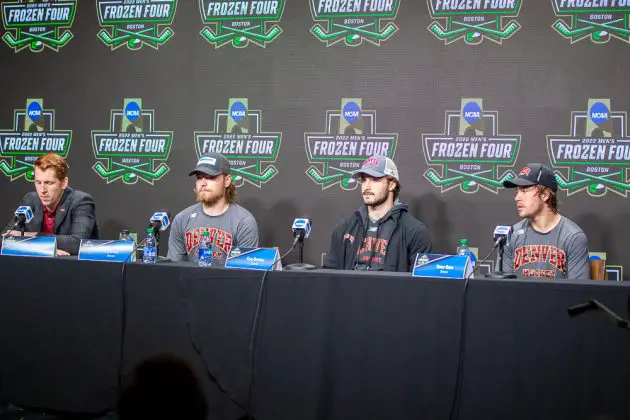
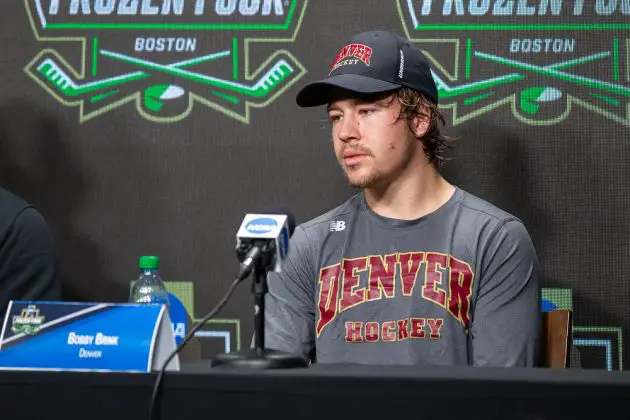
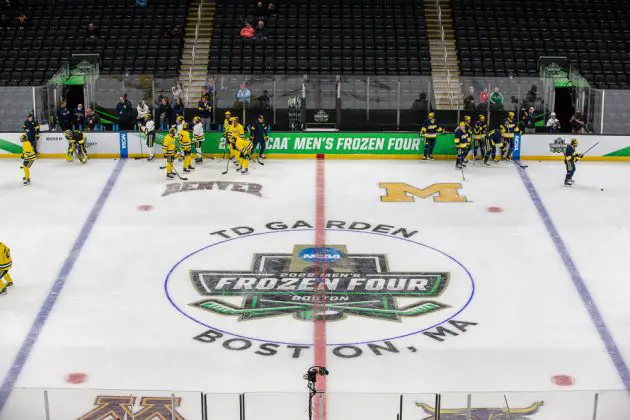
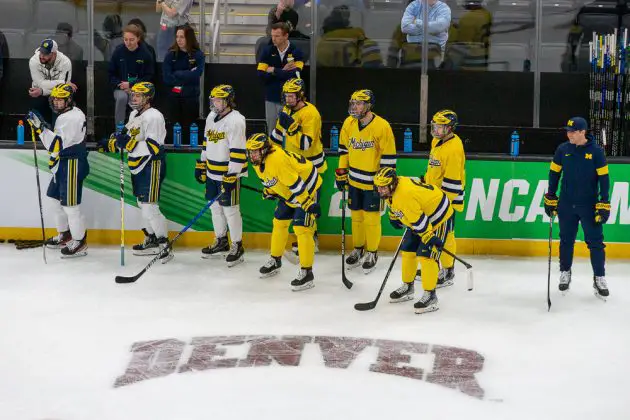
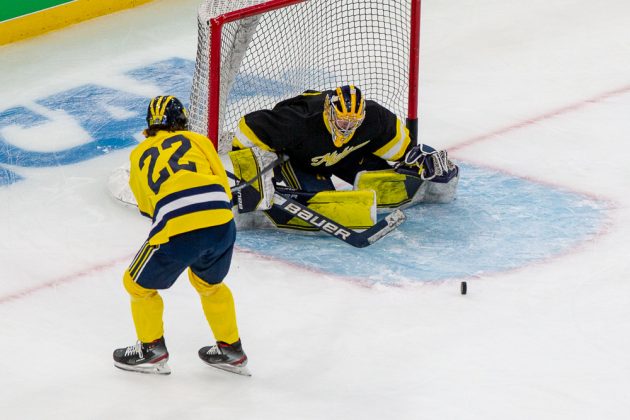
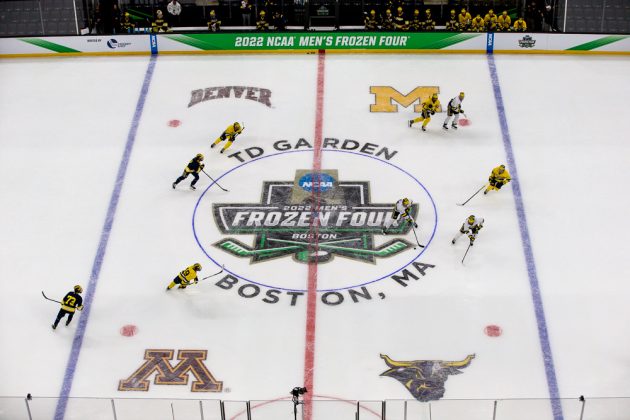
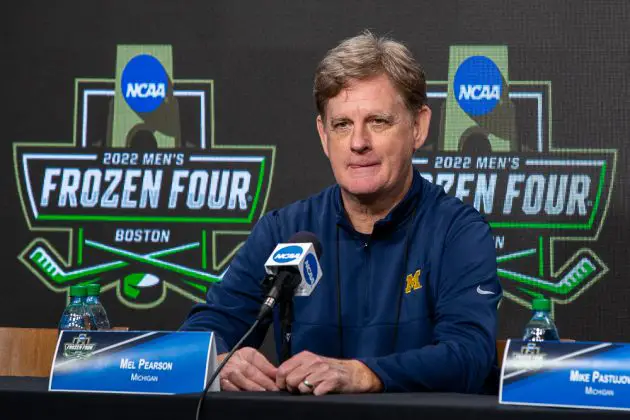
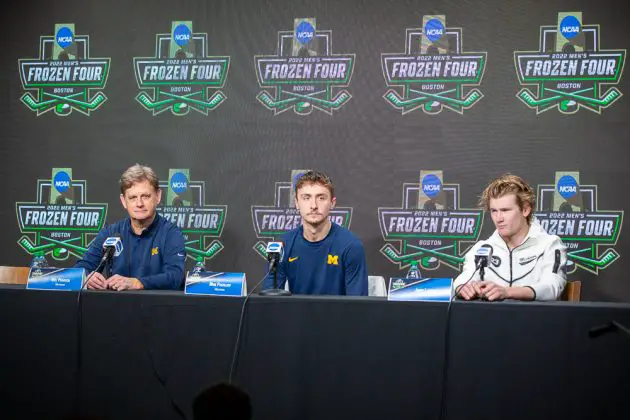
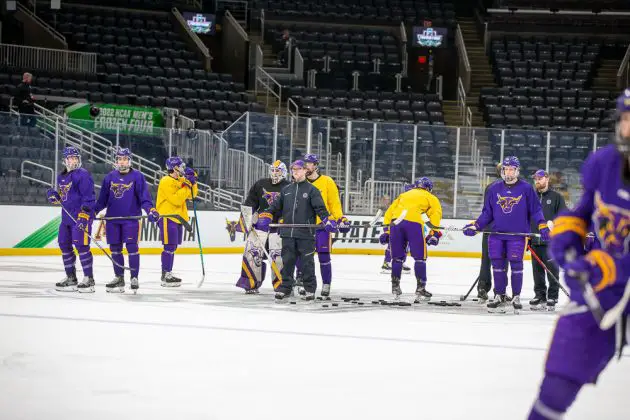
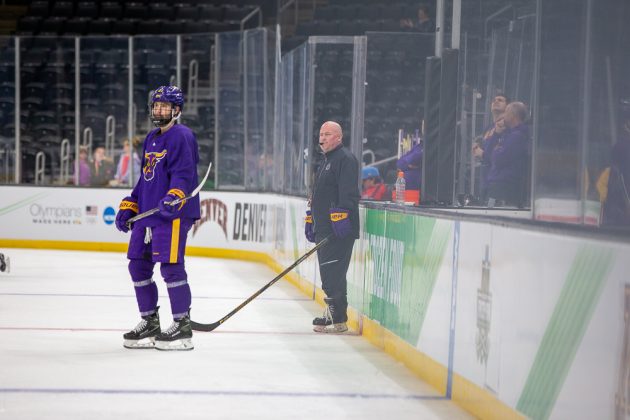
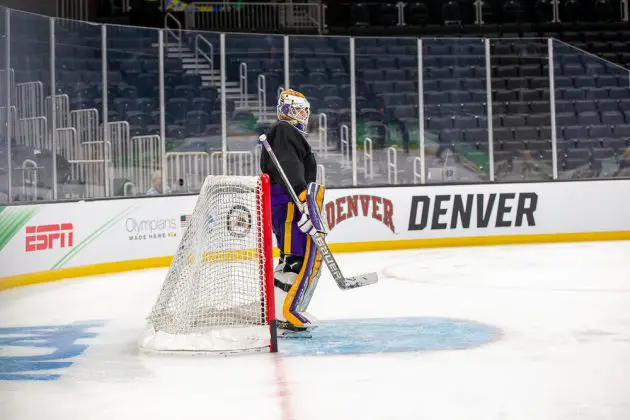
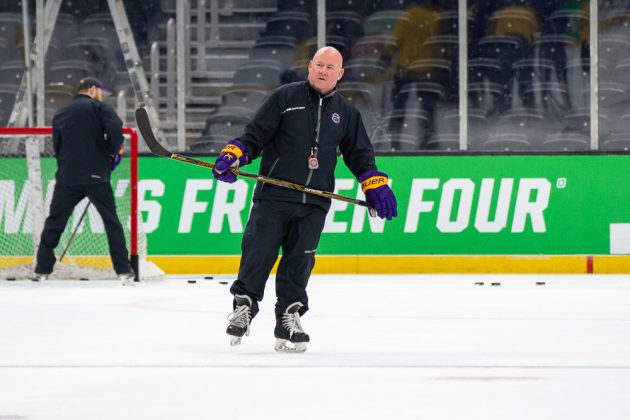
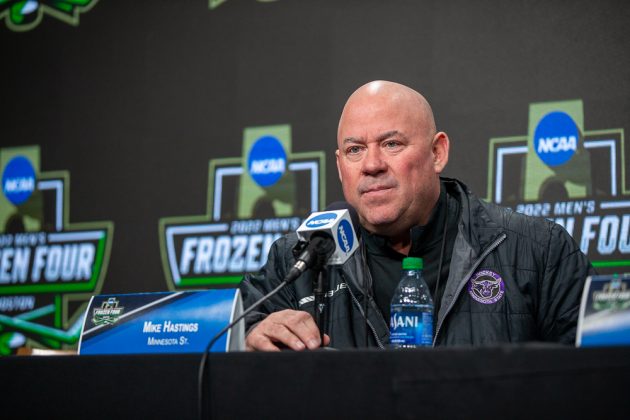
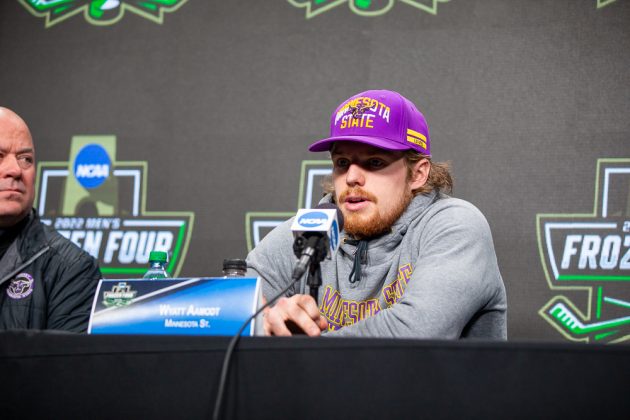
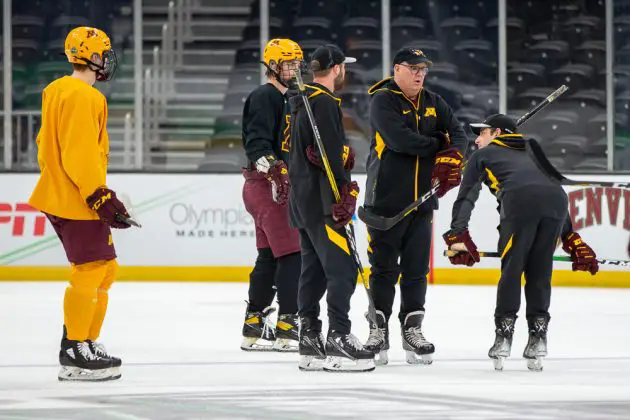
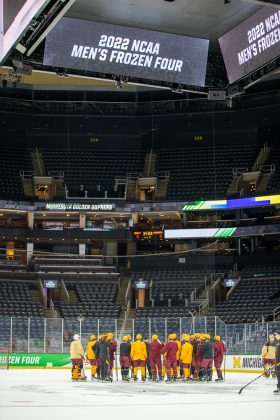
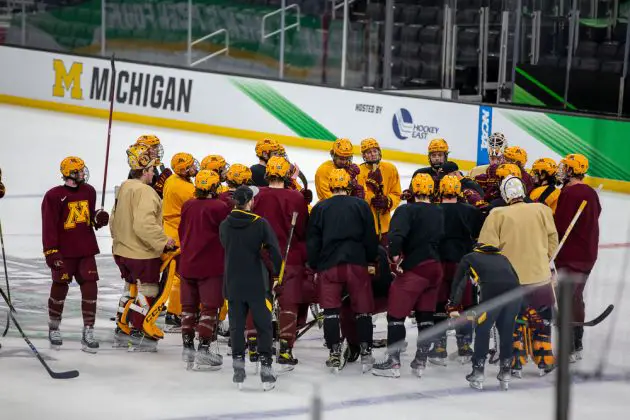
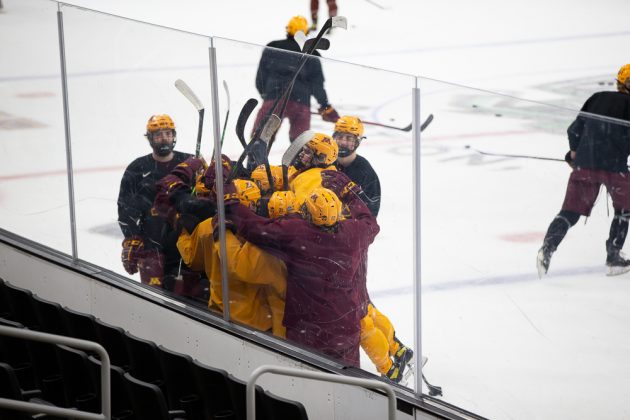
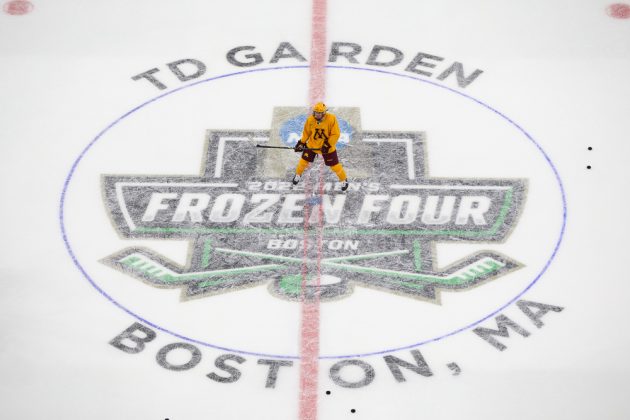
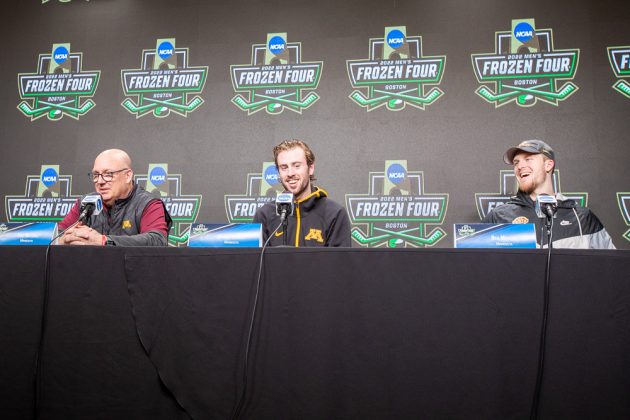
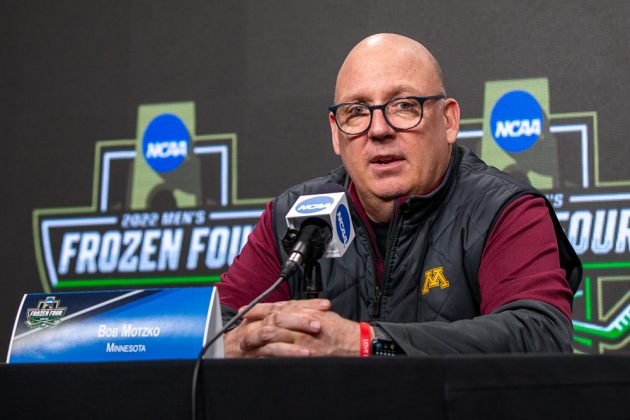
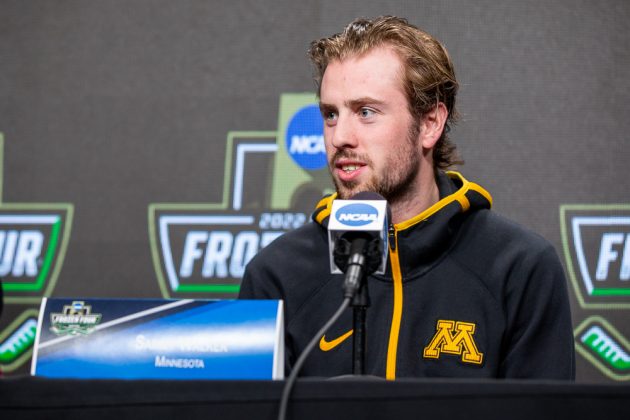
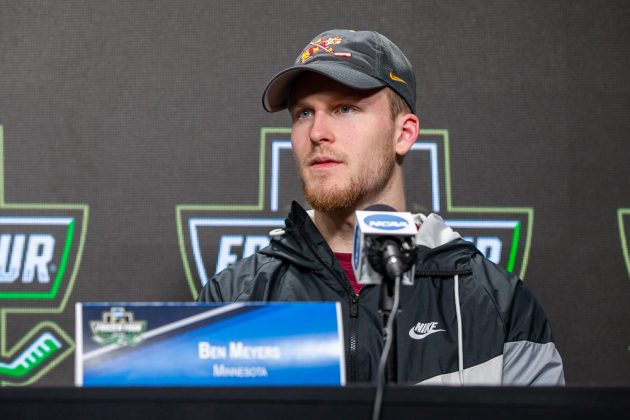
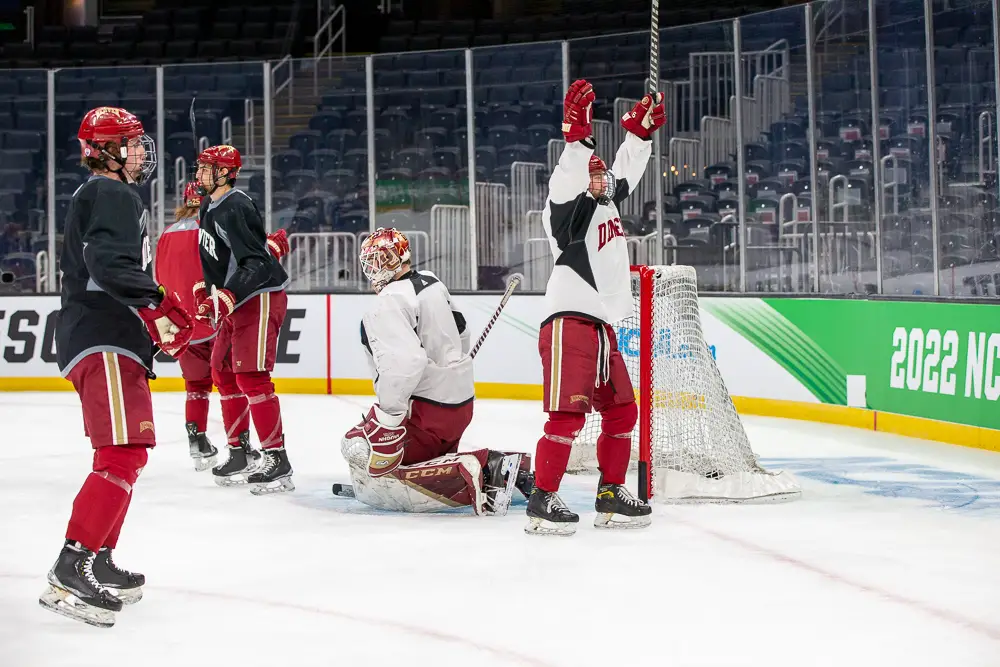
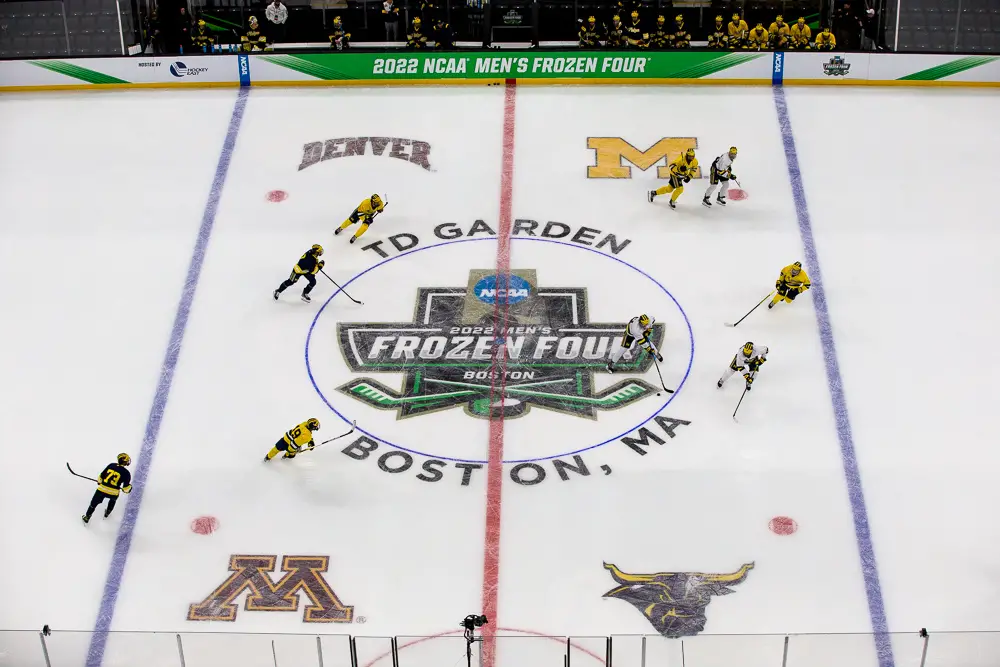
 Listen to the replay as USCHO Spotlight took the podcast on the road to the NCAA Men’s Frozen Four in Boston. Hosts Jim Connelly, Derek Schooley, and Ed Trefzger were live from West End Johnnie’s, just a short walk from TD Garden.
Listen to the replay as USCHO Spotlight took the podcast on the road to the NCAA Men’s Frozen Four in Boston. Hosts Jim Connelly, Derek Schooley, and Ed Trefzger were live from West End Johnnie’s, just a short walk from TD Garden.